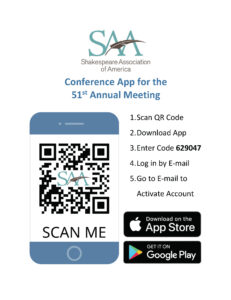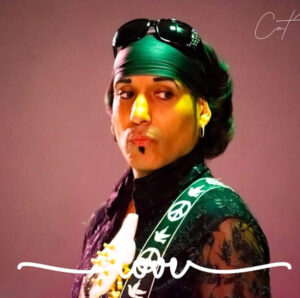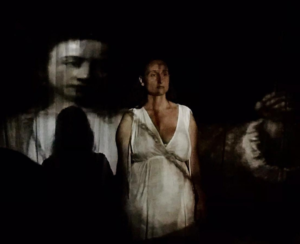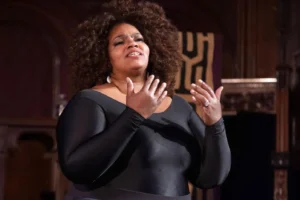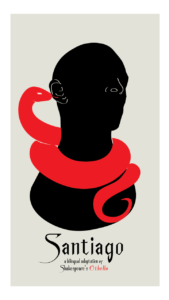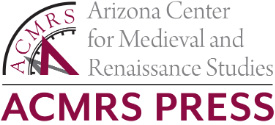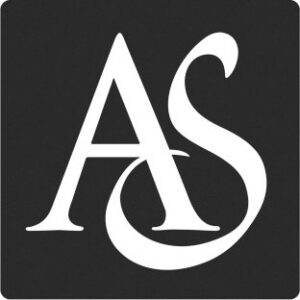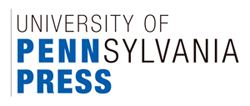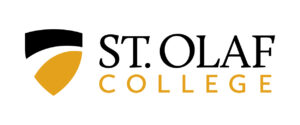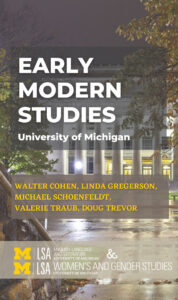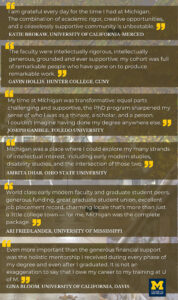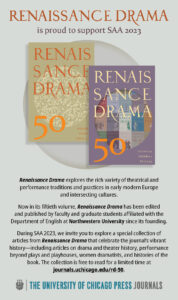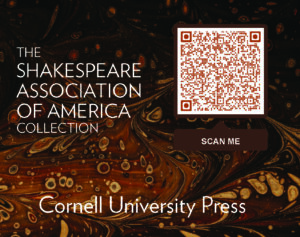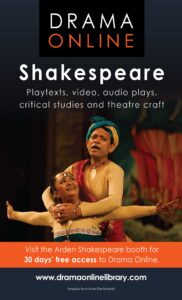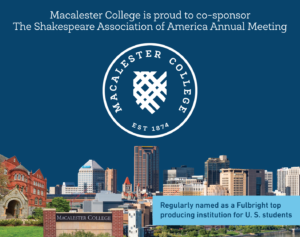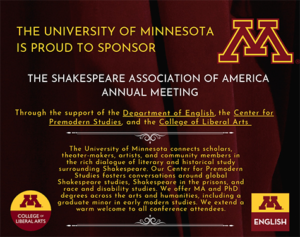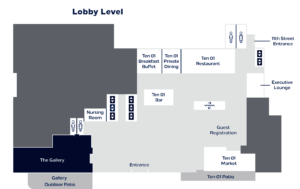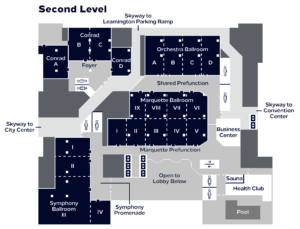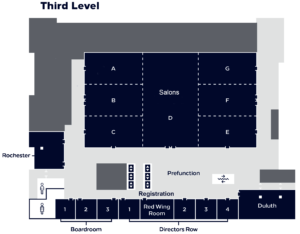2023 Meeting Program and Schedule
Additions:
- Book Signing (Thursday, 5:30 to 6:00 p.m.), Symphony Ballroom.
Cancellations:
- The Performance of The Rape of Lucrece (Friday, 11:00 a.m. to 1:00 p.m.) has been cancelled.
Time Changes:
- The Reception (Thursday, 6:00 to 8:30 p.m.) will be two and half hours long, with music of Prince live with Chase & Ovation.
Venue Changes:
- The Cash Bar (Wednesday, 6:00-7:00 p.m.) is moved to Salons AB.
- Seminar: Henry VIII: New Directions (Thursday, 3:30 to 5:30 p.m.) is moved to Marquette V.
- The Annual Luncheon (Friday, 1:30 to 3:30 p.m.) is moved to Salons DEFG.
- The Plenary Panel (Friday, 3:30 to 5:00 p.m.) is moved to Salons ABC.
- The Scholars of Color Social and Cash Bar (Friday, 5:15 to 7:15 p.m.) is moved to Salons EFG.
- Performance: Becoming Othello: A Black Girl’s Journey (Friday, 7:30 to 8:30 p.m.) is moved to Salons EFG.
29 March ➤
30 March ➤
31 March ➤
1 April ➤
29 March ➤
4:00 to 7:00 p.m.
Registration
Advanced Onsite Registration
📌 Red Wing Room
5:00 to 6:00 p.m.
Meeting
Town Hall Business Meeting
📌 Salons ABC
Open to all registrants.
6:00 to 7:00 p.m.
Cash Bar
📌 Salons AB
Open to all registrants and their registered guests.
30 March ➤
8:00 a.m. to 6:00 p.m.
Registration
📌 Red Wing Room
Book Exhibits
📌 Symphony Ballroom
8:00 to 9:00 a.m.
Professionalization
Meet-and-Greet with Journal Editors
📌 Conrad B
ORGANIZER: Jeremy Lopez, Shakespeare Quarterly
Join the editors of several peer-reviewed journals for coffee and informal conversation about submitting work for publication: what to submit, where to submit, and what to expect after you’ve submitted it. All are welcome, and early-career scholars are particularly encouraged to attend.
10:00 a.m. to 12:00 noon
Seminar
Abject Science
📌 Marquette II
LEADERS: Pavneet Aulakh, Vanderbilt University and Jean Feerick, John Carroll University
Seventeenth-century natural philosophers maligned romance as fictive. But they continually returned to its motifs, suggesting its enduring philosophical value. With romance as but one example of “abject science,” we invite papers that ask: How do literary forms (dramatic, narrative, poetic), stylistic strategies, or tropes model ways of knowledge-making alternative or instrumental to natural philosophy? How might the history of science look if we foregrounded such non-normative practices?
- Katharine A. Craik, Oxford Brookes University
- Mary T. Crane, Boston College
- Katherine Eggert, University of Colorado Boulder
- Lianne Habinek, Massachusetts Institute of Technology
- Gavin Hollis, Hunter College, CUNY
- Tamara Mahadin, Ohio State University
- Lynn M. Maxwell, Spelman College
- Corey McEleney, Fordham University
- Victoria Louise McMahon, Winnipeg, Canada
- Debapriya Sarkar, University of Connecticut
Workshop
Applied Shakespeare: Renaissance Leadership for Transformative Higher Education
📌 Marquette I
LEADERS: Ariane Balizet, Texas Christian University, Natalie K. Eschenbaum, University of Washington, Tacoma, and Marcela Kostihova, Hamline University
This workshop is designed for Renaissance scholars interested in leadership positions in the academy. How does the field’s frequent consideration of leadership in Renaissance texts make us uniquely qualified for this work? How do Renaissance scholar administrators use their critical/historical perspectives to advocate for the humanities? How do we build skills in areas required for leadership that are not part of our scholarly training? Common readings and reflective writing will be completed in advance.
- Katharine Cleland, Virginia Tech
- Marisa R. Cull, Randolph-Macon College
- Jennifer Flaherty, Georgia College
- Joseph P. Haughey, Northwest Missouri State University
- Sara Morrison, William Jewell College
- Kate E. Myers, Olivet College
- Sarah Elizabeth Parker, Jacksonville University
- Mardy Philippian, Lewis University
- Catherine E. Thomas, Georgia Institute of Technology
- Travis D. Williams, University of Rhode Island
- Jayme M. Yeo, Belmont University
Workshop
Artifact as Text: Object-Based Learning in the Shakespeare Classroom
📌 Rochester
LEADERS: Jess Hamlet, Alvernia University and Molly Beth Seremet, Mary Baldwin University
This interactive pedagogy workshop will give participants new tools to engage their students in close-reading practices. This two-part session will both model best practices for educators using objects as a close-reading exercise as well as give participants the opportunity to share, workshop, and refine their own pedagogical practices, taking skills and methods learned from/during the pandemic and incorporating them into regular teaching practices in person, online, or in a hybrid format.
- Valerie Billing, Central College
- Jennifer Black, Boise State University
- Katherine Blankenau, Mount Marty University
- Amy L. Bolis, University of Minnesota, Twin Cities
- Alexandra Carter, Deerfield Academy
- Elizabeth A. Charlebois, St. Mary’s College of Maryland
- Margaret Christian, Pennsylvania State University, Lehigh Valley
- Kaitlyn J. Engel, SUNY University at Buffalo
- Nicole Hagstrom-Schmidt, Texas A&M University
- Pierre Hecker, Carleton College
- Anna Hegland, Carthage College
- Cyrus Mulready, SUNY New Paltz
- Ryan S. Paul, Texas A&M University, Kingsville
- Kimberly G. Reigle, Mars Hill University
- Emily Yates, Michigan State University
Seminar
Beyond “Formal Limits”: New Frontiers in Theater History
📌 Marquette IV
LEADERS: Christopher Matusiak, Ithaca College and Kara Northway, Kansas State University
On the centenary of E. K. Chambers’ The Elizabethan Stage and its institution of the “formal limits” of modern theater history, this seminar will integrate twenty-first-century conversations that interrogate or challenge the discipline’s boundaries, borders, and barriers. We welcome papers on race, gender, ability, and other inclusive topics in early theater; previously overlooked archives; innovative digital projects; and other research that charts meaningful new directions in theater history.
- Douglas H. Arrell, University of Winnipeg
- Marlin E. Blaine, California State University, Fullerton
- Liam Thomas Daley, University of Maryland
- William Ingram, University of Michigan
- Laurie Johnson, University of Southern Queensland
- David Kathman, Chicago, IL
- Roslyn L. Knutson, University of Arkansas, Little Rock
- Alan H. Nelson, University of California, Berkeley
- Gerit Quealy, New York, NY
- Richard Schoch, Queen’s University Belfast
- Héloïse Sénéchal, Shakespeare Institute, University of Birmingham
- Elizabeth E. Tavares, University of Alabama
- Paul Whitfield White, Purdue University
- Robert O. Yates, Graduate Center, CUNY
Seminar
Comic Epistemologies, Part One
📌 Directors Row 2
LEADERS: Laura Kolb, Baruch College, CUNY and Jessica Rosenberg, University of Miami
This seminar invites papers that explore Shakespearean comedy as a site at which knowledge is made, tested, circulated, and used. What kinds of knowledge did comedy—with its reliance on confusion and misrecognition, trial and error, tricks and devices—make possible? What understandings of matter, environment, bodies? How did stage comedy engage non-dramatic genres of practical knowledge? What overlooked epistemic settings and subjects does an attention to early modern comic practices reveal?
- Hannah M. Bredar, University of Michigan
- Matthew P. Harrison, West Texas A&M University
- Lucy Alice Holehouse, University of Birmingham
- Kimberly A. Huth, California State University, Dominguez Hills
- Matthew Kozusko, Ursinus College
- Victor Lenthe, Bilkent University
- Lindsey Row-Heyveld, Luther College
- Emily Shortslef, University of Kentucky
- John-Paul Spiro, Villanova University
- Richard Allen Strier, University of Chicago
- Maggie Vinter, Case Western Reserve University
- Adam Zucker, University of Massachusetts, Amherst
Seminar
Contemporary Poets and Early Modernity
📌 Directors Row 3
LEADERS: Hannah Crawforth, King’s College London, Amrita Dhar, Ohio State University, and Elizabeth Scott-Baumann, King’s College London
This session asks how contemporary poets writing today have responded to early modern texts, images and ideas. We will discuss what it means to write with—and against—a historical period that enshrines ideas about politics, class, race, ability, gender and sexuality that have led to the structural inequalities of today. We will pay particular attention to form: what does it mean to use the forms of early modernity in order to question the presumptions and hierarchies of that historical moment and its often damaging legacies for today?
- Toby Altman, Beloit College
- Frederick Bengtsson, University of Kentucky
- Joanne Diaz, Illinois Wesleyan University
- Joel M. Dodson, Southern Connecticut State University
- Huw Griffiths, University of Sydney
- Lenora Bellee Jones-Pierce, Centenary College of Louisiana
- Erin K. Kelly, California State University, Chico
- Stephanie Pietros, College of Mount St. Vincent
- Ayesha Ramachandran, Yale University
- Reginald A. Wilburn, Texas Christian University
Seminar
Cunning
📌 Marquette VIII
LEADERS: Suparna Roychoudhury, Mount Holyoke College and Katherine Walker, University of Nevada, Las Vegas
We invite explorations of cunning in Shakespeare’s works and time. How do cunning figures wield their knowledge in different social or epistemic registers? Given the interpretative and performative possibilities of cunning, we encourage explorations of how the term and its values are culturally constructed on the Renaissance stage. We welcome investigations that intersect with questions of religion, race/ethnicity, gender/sexuality, disability, or histories of magic, philosophy, and science.
- Reut Barzilai, University of Haifa
- Roya Biggie, Knox College
- Ani Govjian, Los Angeles, CA
- Hilary Jayne Gross, University of Illinois, Urbana-Champaign
- Jillian Linster, University of South Dakota
- Ian Munro, University of California, Irvine
- Amos Rothschild, St. Thomas Aquinas College
- Tanya Schmidt, New York University
Seminar
Early Modern Data
📌 Board Room 2
LEADER: John Ladd, Washington & Jefferson College
This seminar invites papers on early modern data: the early modern obsession with information collected and arranged for later presentation or study. We will examine data as a historical concept alongside today’s data analysis techniques. Topics may include data analysis of literature, explorations of the use of data in the early modern period, the place of data within performance, and the intersection of historical data with conceptions of race, class, gender, sexuality, and disability.
- Ifeoluwa Aboluwade, University of Bayreuth
- Robert Hornback, Oglethorpe University
- Robert Ormsby, Memorial University of Newfoundland
- Valerie Wayne, University of Hawaiʻi
- Mary Erica Zimmer, Massachusetts Institute of Technology
Seminar
Imagining Antiquity, Part One
📌 Board Room 3
LEADERS: Daniel Blank, Durham University and Heather James, University of Southern California
This seminar explores the early modern stage’s fascination with the ancient world, from the use of classical texts to the depiction of characters from classical antiquity. We invite papers which seek to broaden traditional ideas of early modern dramatists’ debt to the past. Possible topics include the influence of individual source texts; the relationship between classical texts and early modern representations of identity; legacies of ancient figures both within and beyond early modern drama.
- Alessandro C. Garganigo, Austin College
- Patrick Gray, University of Austin (UATX)
- Ethan J. Guagliardo, University of British Columbia, Okanagan
- Matthew Hunter, Texas Tech University
- Joyce G. MacDonald, University of Kentucky
- James J. Marino, Cleveland State University
- Andrew Mattison, University of Toledo
- Ian F. Moulton, Arizona State University
- Joseph M. Ortiz, University of Texas, El Paso
- Lindsay Reid, National University of Ireland, Galway
- Amanda K. Ruud, Valparaiso University
- Bailey Sincox, Princeton University
- William Steffen, American International College
- David Vaughan, Northwestern Oklahoma State University
- Andrew Wallace, Carleton University
Seminar
Intersectional Animality, Part One
📌 Marquette VI
LEADERS: Holly Dugan, George Washington University and Karen Raber, University of Mississippi
Critical animal studies seek to divest definitions of the human from arguments for ethical, legal, and political rights and protections, yet it remains problematic to connect the place of animals with the treatment of people, especially since metaphors of animality have been weaponized against so many. While acknowledging this tension, this seminar explores how critical animal studies can engage productively with premodern critical race studies, disability studies, early modern trans studies, and more.
- Mary Adams, Western Carolina University
- Benjamin Bertram, University of Southern Maine
- Ryan Campagna, University of Chicago
- Matthieu A. Chapman, SUNY New Paltz
- Lars Engle, University of Tulsa
- Colby Gordon, Bryn Mawr College
- Molly Hand, Florida State University
- Naomi C. Liebler, Montclair State University
- Caitlin Mahaffy, Utah State University
- Matthew Fredrick Walsh, University of Massachusetts, Amherst
- Myra E. Wright, University of Southern Maine
Seminar
Shakespeare, Bob Dylan, and the Bardic Tradition
📌 Marquette IX
LEADERS: Mark Bayer, University of Texas, San Antonio and Robert Sawyer, East Tennessee State University
A native of Minnesota, Bob Dylan’s writings are saturated with allusions to Shakespeare. But the similarities between the two writers go beyond simple influence or appropriation. Both are cultural icons whose works transcend popular culture and permeate literary, academic, and political discussions, and who are often seen as secular prophets. This seminar invites papers that consider the multiple lines of intersection between Shakespeare, Dylan, and the bardic tradition they represent.
- Mary Bly, Fordham University
- Danielle N. Byington, University of Jaén
- Darlena Ciraulo, University of Central Missouri
- Keith Jones, University of Northwestern, Saint Paul
- Sarah Lindenbaum, Bloomington, IL
- Alyse Kay O’Hara, University of Connecticut
Seminar
The World Must Be Peopled: Biopolitics and Early Modern Sexuality, Labor, and Race
📌 Marquette VII
LEADER: Ari Friedlander, University of Mississippi
In an age of pandemics and renewed focus on public health, it is time to think about biopolitics. How did the state come to exercise power through the management of biological life? What social, political, and religious factors combined to reconceive nations as populations rather than territories? How did this shift alter ideas about sexuality, disability, race, class, and literature? Papers may examine literary and non-literary texts on poor relief, life under plague, management of laborers, and colonial projects in Europe and around the world.
- Drew Daniel, Johns Hopkins University
- Kelly A. Duquette, Emory University
- Joseph Gamble, University of Toledo
- David Glimp, University of Colorado, Boulder
- Sawyer K. Kemp, Queens College, CUNY
- Ross M. Knecht, Emory University
- Sarah Le, Indiana University, Bloomington
- Sarah Gray Lesley, University of Chicago
- Carol Mejia LaPerle, Wright State University
- Jennifer Row, University of Minnesota
- Valerie Traub, University of Michigan
Digital Exhibit
Early Modern Dramatic Paratexts
📌 Symphony Ballroom
EXHIBITORS: Heidi Craig, Texas A&M University and Sonia Massai, King’s College London
Early Modern Dramatic Paratexts (EMDP, paratexts.folger.edu) is an open-access database of all dramatic paratexts printed to 1660. EMDP digitizes and expands Paratexts in English Printed Drama to 1642 (CUP, 2014) edited by Thomas L. Berger and Massai, and was created with the Folger Shakespeare Library and Texas A&M’s Center for Digital Humanities Research (CoDHR).
Digital Exhibit
First Folio Celebration: An Immersive Experience
📌 Symphony Ballroom
EXHIBITORS: Gabriel Egan, De Montfort University and Tam McDonald, Cradle of English Limited
Cradle of English is a London-based start-up company inspired by the links between new technologies and evolving culture, from the 16th century printing presses to today’s immersive technologies. It is creating a multimedia, digital content platform—called an “immerzeo”—to celebrate the 400th anniversary of the First Folio and as a new way of presenting history.
Digital Exhibit
The Marlowe Census
📌 Symphony Ballroom
EXHIBITOR: Rob Carson, Hobart and William Smith Colleges
Borrowing its design from the Shakespeare Census conducted by Adam Hooks and Zachary Lesser, the Marlowe Census attempts to locate and describe all surviving copies of Marlowe’s works printed before 1700. We are also developing an open-source template for scholars who are interested in conducting censuses of their own for the surviving corpora of other early modern writers.
Digital Exhibit
REED and Taxonomies: Toward a Classification of the Early Modern Everything
📌 Symphony Ballroom
EXHIBITOR: Tanya Hagen, University of Toronto
This session showcases REED Online, the web-based, open access resource launched in 2016 by the Records of Early English Drama project as a successor to our print-based series. Producing REED in an electronic environment involves a large-scale rethinking of how we name and classify the myriad entities that a collection comprehends, particularly as we think toward broad interoperability with other digital humanities resources.
Digital Exhibit
Rethinking the Canon: Integrating Corpus Linguistics into Traditional Literary Analysis
📌 Symphony Ballroom
EXHIBITOR: Lily Freeman-Jones, Queen Mary University of London
This project presents a doctoral thesis as an example of how corpus linguistics might be incorporated by a wider range of literary scholars, without digital humanities expertise. It also evaluates computer-generated and traditional manual methods to create a lexical field. In doing so, it ultimately aims to foster discussion about how and why we work the way we do today.
Digital Exhibit
Unfortunate Creatures: Pre-modern Natural Disaster Narratives
📌 Symphony Ballroom
EXHIBITOR: Ian F. MacInnes, Albion College
Unfortunate Creatures invites participants to collaborate on a peer-reviewed crowd-sourced project devoted to making available TEI-encoded primary sources reacting to natural disasters in the pre-modern period combined with numerical data gleaned from those sources. The project is particularly interested in promoting mentored undergraduate research.
1:30 to 3:00 p.m.
Roundtable
Carceral Shakespeare
📌 Salon D
ORGANIZERS: Liz Fox, University of Massachusetts, Amherst and Gina Hausknecht, Coe College
CHAIR: Sarah Higinbotham, Emory University, Oxford College
Liz Fox, University of Massachusetts, Amherst
Gender Inequities: Shakespeare in Women’s Prisons
Frannie Shepherd-Bates, Detroit, MI
Impacts and Outcomes: Assessing a Shakespeare Prison Arts Program
Kevin J. Windhauser, Washington University in St. Louis
Misreading or Counter-Reading?: Unstructured Encounters with Shakespearean Texts in Prison Libraries Early Modern Studies
Gina Hausknecht, Coe College
Stealth Abolition: Public Conversations about Carceral Shakespeare
Panel
Race-ing Queens
📌 Salons ABC
ORGANIZER: Mira ‘Assaf Kafantaris, Butler University
CHAIR: Margo Hendricks, University of California, Santa Cruz
Mira ‘Assaf Kafantaris, Butler University
The Epistemic Promise of Race-ing Queens
Danielle Lee, SUNY College at Old Westbury
Surrender to the Queen: Queen Nzinga, African Female Agency, and Portuguese Submission
Harry R. McCarthy, Jesus College, University of Cambridge
Not He, the Queen: Boyed Blackness and Queer Race in Antony and Cleopatra
Anita Raychawdhuri, University of Houston-Downtown
Queer/Quean: The Tragedy of Mariam, Whiteness, and Queer Chastity
3:30 to 5:30 p.m.
Seminar
Early Modern London Historiography and Drama
📌 Rochester
LEADERS: Janelle Jenstad, University of Victoria and Mark Kaethler, Medicine Hat College
London’s historiography and drama meet in civic pageantry, mayoral shows, chronicle comedies, and urban surveys. While much has been said on the power dynamics and forms of nationhood or civic identity, it is time to return to these texts and their politics. Seminar leaders particularly encourage papers on Premodern Critical Race Studies and Premodern Critical Indigenous Studies as well as their intersections with gender, sexuality, and ecocriticism.
- Susan L. Anderson, Sheffield Hallam University
- Andrew S. Brown, Dalhousie University
- Heather C. Easterling, Gonzaga University
- J. Caitlin Finlayson, University of Michigan, Dearborn
- Andrew J. Fleck, University of Texas, El Paso
- Mikaela LaFave, University of Georgia
- Bernadette Myers, New York University
- Nova Myhill, New College of Florida
- Catherine Reedy, Lake Forest College
- Karen Robertson, Vassar College
- Gregory M. Schnitzspahn, Fisher College
- Amrita Sen, University of Calcutta
- Nicole Sheriko, Christ’s College, Cambridge
- Dorothy Todd, Texas A&M University
Seminar
Echoes of Violence
📌 Board Room 2
LEADERS: Matt Carter, Clayton State University and Samantha Dressel, Chapman University
How do Renaissance plays create echoes of violence? How do modern echoes of that violence distort or add meaning to the original context? This seminar considers the way violence resounds across the Renaissance and into our world. We consider violence broadly, looking at enacted, threatened, imagined, and stifled violence, as that violence appears textually, in performance, and inter- and meta-textually. The seminar encourages a range of critical perspectives.
- Charlotte Artese, Agnes Scott College
- Amanda Eubanks Winkler, Syracuse University
- Gregory A. Foran, Nazareth College
- Loreen L. Giese, Ohio University
- Jennifer Lillian Lodine-Chaffey, Montana State University, Billings
- Gabriel Lonsberry, Jacksonville State University
- Julie Bernadette Prior, Oklahoma Panhandle State University
- Kelsey Ridge, Warminster, PA
- Megan Snell, Wells College
- Jeffrey Scott Squires, Carnegie Mellon University in Qatar
- Jesse G. Swan, University of Northern Iowa
- Amina Tajbhai, Hostos Community College, CUNY
- Paul Werstine, King’s University College, Western
- Paul J. Zajac, McDaniel College
Seminar
Henry VIII: New Directions
📌 Marquette V
LEADERS: Meghan C. Andrews, Lycoming College and Edward Gieskes, University of South Carolina
This seminar invites new perspectives on Henry VIII, asking what fresh inquiries we should be making of the play today. How might new approaches to Henry VIII—including but not limited to studies of collaboration, trauma, race, performance and theater history, or formalist, feminist, queer, book historical, or pedagogical approaches—reinvigorate its study? Contributions from all theoretical and disciplinary approaches are welcome, as is work that is new, still in progress, or speculative.
- José Manuel González, Universidad de Alicante
- Brian J. Harries, Concordia University
- Mark Anthony Houlahan, University of Waikato, Hamilton
- Melissa J. Jones, Eastern Michigan University
- Elizabeth Zeman Kolkovich, Ohio State University
- Stuart M. Kurland, Duquesne University
- Gaywyn E. Moore, Santa Clara University
- David J. Morrow, College of St. Rose
- Lori Humphrey Newcomb, University of Illinois, Urbana-Champaign
- Michael M. Wagoner, United States Naval Academy
- Mikaela Warner, University of Georgia
Seminar
Love’s Labour’s Won: Reimagining Shakespeare Studies
📌 Marquette VIII
LEADER: Scott Maisano, University of Massachusetts, Boston
As we celebrate the 400th anniversary of the First Folio, let’s remember Love’s Labour’s Won. Any Complete Works of Shakespeare that does not contain LLW is incomplete. What might a lost, ecstatic, utopian text make possible for Shakespeare studies? What opportunities does this canonical gap open for queer of color performance, ecofeminism, or postcritique? Could it make comedy, pedagogy, or research more inclusive? What’s in a title? Can imagination play a bigger role in Shakespeare studies?
- Robert F. Darcy, University of Nebraska, Omaha
- John S. Garrison, Grinnell College
- Ellen MacKay, University of Chicago
- Alexander Lowe McAdams, Lone Star College
Seminar
Marlowe and Jonson
📌 Directors Row 2
LEADER: Judith Haber, Tufts University
We will consider two of the greatest poet-playwrights of the period. Papers may focus on one text or many, on either author alone or on both together, or on comparisons with Shakespeare and others. Any type of approach is welcome. Questions to be considered may include the following: What is distinctive about the texts of each writer? How do they influence and interact with each other or with Shakespeare? How do newer critical and theoretical approaches alter our view of their texts?
- Emily C. Bartels, Rutgers University
- Mathieu D. S. Bouchard, McGill University
- Lara Bovilsky, University of Oregon
- Martin Butler, University of Leeds
- Mariam Galarrita, Arizona State University
- Céline Magada, Université de Lausanne
- Linda McJannet, Bentley University
- Richard Preiss, University of Utah
- Bradley D. Ryner, Arizona State University
- John Yargo, Boston College
Seminar
Metatheater as Rivalry and Dialogue
📌 Directors Row 3
LEADER: Daniel Moss, Southern Methodist University
With Shakespeare’s traditional priority as metatheatrical mastermind beginning to give way to a healthier, dialogic account of metatheatricality, it is time for a revaluation of practices by other playwrights and companies. This seminar explores alternative metatheatrical modes—whether in relation to Shakespeare’s work or independent of it—and seeks to identify new points of contact with recent scholarship on race, gender, queer expression, class, and other key aspects of Early Modern drama.
- Clara K. Biesel, University of Minnesota
- Mark C. Hulse, Jackson College
- Jordan Ivie, Vanderbilt University
- Joseph Hirzer Kidney , Stanford University
- Nathaniel C. Leonard, Westminster College, Missouri
- Mitchell R. Macrae, Colorado State University
- Lucy Munro, King’s College London
- William G. Roudabush, Southern Methodist University
- Nancy Selleck, University of Massachusetts, Lowell
- Tiffany Stern, Shakespeare Institute, University of Birmingham
- Andrea R. Stevens, University of Illinois, Urbana-Champaign
Seminar
Natural History Now
📌 Marquette VII
LEADER: Joseph Campana, Rice University
Recent attention to creatures relies on a “Renaissance” of natural history in early modern Europe. What is natural is history now? Iconic works or new ones? Relative to poetry, theater, other arts? What models for creaturely stories? Natural history relative to genre? Form? Audience? Media? Global traffic and the Columbian exchange? When does natural history “naturalize” (sex, gender, sexuality, race) or confound? What is an author, what is humanism from this vantage?
- Todd A. Borlik, University of Huddersfield
- Keith M. Botelho, Kennesaw State University
- Hillary Eklund, Loyola University New Orleans
- Jeff Theis, Salem State University
- Julian Yates, University of Delaware
Seminar
New Approaches to A Midsummer Night’s Dream, Part One
📌 Marquette III
LEADER: Rebecca Bushnell, University of Pennsylvania
This seminar will focus on how the interpretation and performance of A Midsummer Night’s Dream have evolved in the past few decades, in particular as reflected through the lenses of gender, sexuality, race, post-colonialism, and the environment. Papers are invited that represent many different perspectives and approaches, including performance history, global translations and adaptations, and critical history, as well as interpretations of different aspects and themes of the play.
- Nicholas Bellinson, St. John’s College, Annapolis
- Jessica K. Chiba, Shakespeare Institute
- Mayra A. Cortes, University of California, San Diego
- Andrew M. Darr, Centralia High School, MO
- Katherine Hennessey, Wenzhou-Kean University
- Jason C. Hogue, University of Texas, Arlington
- Rebecca Laroche, University of Colorado, Colorado Springs
- Geraldo U. de Sousa, University of Kansas
Seminar
Pedagogies of Premodern Disability
📌 Marquette IV
LEADERS: Genevieve Love, Colorado College and Katherine Schaap Williams, University of Toronto
What are the stakes of attending to critical disability studies in teaching Shakespeare and early modern drama? How do we move from classroom practice to disability justice? This seminar considers the pedagogical methods and practices that illuminate disability representations, disabling conditions, and disability gain in early modern texts. We welcome position papers that pair key theoretical and primary text(s) as well as experimental and reflective forms of writing on disability pedagogies.
- RaNelle Kathleen Bradley, New York University
- Simone Chess, Wayne State University
- Christine M. Gottlieb, California State University, East Bay
- Emily L. Loney, Bucknell University
- Maureen McDonnell, Eastern Connecticut State University
- Shaun Nowicki, University of California, Santa Barbara
- Katey E. Roden, Gonzaga University
- Alanna Skuse, University of Reading
Seminar
Performance Cultures in and around the Inns of Court
📌 Marquette IX
LEADERS: Emma Rhatigan, University of Sheffield, Michelle O’Callaghan, University of Reading, and Jackie Watson, Oxford, UK
Performance cultures at the Inns of Court took a variety of forms, from Christmas revels and masques to mooting and sermons. The four Inns of Court were not homogenous or discrete spaces but open and traversed. This workshop will explore performance cultures at the Inns and how they move across and intersect with other playing spaces in London and cross borders to engage with European festive cultures and the wider world, via the movement of people, texts, performances, and objects.
- Jessica Apolloni, Christopher Newport University
- Piers Brown, Kenyon College
- Sierra Kay Carter, University of York
- Simon Smith, Shakespeare Institute, University of Birmingham
Seminar
Reconsidering Science and Religion
📌 Marquette II
LEADER: Aaron Kitch, Bowdoin College
This seminar invites explorations of early modern science and religion, broadly conceived. How did early modern accounts of anatomy, astronomy, botany, natural history, or medicine, for example, both draw on and reshape theology? How did new empirical efforts to observe nature challenge or reinforce religious ideas and practices? How do we locate Shakespeare’s works in relation to such contexts? Literary, historical, archival, and theoretical approaches equally welcome.
- Jacqueline Cowan, Red Deer Polytechnic
- Paul A. Fried, Northfield, MN
- Becky S. Friedman, University of Pennsylvania
- Sarah S. Keleher, Colorado College
- Wesley Russell Kisting, Augusta University
- Rhodri Lewis, Princeton University
- Jennifer R. Rust, Saint Louis University
Seminar
The Renaissance Project
📌 Board Room 3
LEADERS: Tessie Prakas, Scripps College and Colleen Ruth Rosenfeld, Pomona College
“Renaissance” is largely taken to identify periods of radical innovation in arts and letters. The chronological borders of those periods shift from region to region (e.g. Italian, English, Ottoman) but it is generally a given that any period the term designates is now closed. But what if “Renaissance” is best conceived not as a closed historical period but as an open historical project? What if our task is to participate or intervene in these historical projects variously called “Renaissance”?
- Brandi K. Adams, Arizona State University
- Amanda B. Atkinson, Southern Methodist University
- Heidi Brayman, University of California, Riverside
- Nan Z. Da, University of Notre Dame
- Ambereen Dadabhoy, Harvey Mudd College
- Alice Dailey, Villanova University
- Heather Dubrow, Fordham University
- Sharon J. Harris, Brigham Young University
- Paul J. Hecht, Purdue University Northwest
- Alexander Paulsson Lash, National Taiwan University and Stockholm University
- Dianne Mitchell, University of Colorado, Boulder
- Michael West, University of Dallas
Seminar
Shakespeare and the Public Good
📌 Marquette I
LEADERS: Peter Kuling, University of Guelph and Wes Pearce, University of Regina
This seminar explores the public good emerging from Shakespeare beyond the experience of studying the plays or seeing live performances. We seek papers and presentations investigating concepts of the “public good” as it relates to our own scholarship. Does Shakespeare enable us to generate new outcomes for various publics? This seminar aims to collectively debate and define concepts of the “public good” while also identifying the impact of Shakespeare’s contributions to our contemporary world.
- Lucie I. Alden, University of Virginia
- Claire M. Busse, La Salle University
- Sheila T. Cavanagh, Emory University
- Jonathan Koch, Pepperdine University
- Amy L. Smith, Kalamazoo College
- Verena Theile, North Dakota State University
Seminar
Shakespeare’s Propositional Third Spaces: Thinking beyond the Binary
📌 Marquette VI
LEADERS: Christian Billing, University of Hull and Susanne Wofford, New York University
Recent trends in critical theory have pointed to the ways in which normative cultures of oppression frequently use taxonomies and hierarchies based on binary oppositions in order to control and dominate particular groups and/or individuals. This seminar considers how we, as activist scholars, teachers, and artists, can work critically with Shakespeare’s binary-probing imagination in order to provide less-limiting visions of what is ontologically, socially and culturally possible.
- David J. Amelang, Universidad Autónoma de Madrid
- Anston Bosman, Amherst College
- Joanna Huh, University of Cincinnati
- Adam H. Kitzes, University of North Dakota
- Katherine Irene Knowles, Michigan State University
- Joan P. Linton, Indiana University Bloomington
- Sandra A. Logan, Michigan State University
- Jayme Peacock, Quincy University
- John R. Proctor III, Tulane University
- Stephen Spiess, Babson College
- Christine Varnado, University at Buffalo, SUNY
- José Juan Villagrana, San José State University
Book Salon
Spotlight on Early Modern Critical Race Studies
📌 Conrad A
This event brings together three scholars working in Early Modern Critical Race Studies whose first books appear in print in 2022 and 2023: Urvashi Chakravarty (University of Toronto), Miles Grier (Queens College, CUNY), and Noémie Ndiaye (University of Chicago) will interview and discuss each other’s work, followed by an audience Q&A.
5:30 to 6:00 p.m.
Book Signing
📌 Symphony Ballroom
White People in Shakespeare: Essays on Art, Culture, and the Elite, edited by Arthur Little, Jr.
6:00 to 8:30 p.m.
Annual Reception and Concert
📌 Salons EFG
Celebrate the music of Prince live with Chase & Ovation. Open to all registrants for the Fifty-First Annual Meeting and their guests. Each guest must have an SAA name tag in order to attend; guest tags may be requested and purchased on the conference registration form.
31 March ➤
7:30 to 8:30 a.m.
Yoga
Shakespeare Yoga
📌 Conrad D
Scott Jackson, RYT-200, University of Notre Dame
Open to all registrants for the Fifty-First Annual Meeting and registered guests.
8:00 a.m. to 6:00 p.m.
Registration
📌 Red Wing Room
Book Exhibits
📌 Symphony Ballroom
8:00 to 9:00 a.m.
Breakfast
Graduate Student Breakfast
📌 Salons EFG
Hosted by the Trustees of the Association.
9:00 to 10:30 a.m.
Panel
The Early Modern Multiverse: Worlds beyond Worlds in Shakespeare (and Beyond)
📌 Salon D
ORGANIZER: Jane Hwang Degenhardt, University of Massachusetts, Amherst
CHAIR: Alice Dailey, Villanova University
Henry S. Turner, Rutgers University
Wild Cosmologies and Multiple Worlds in Shakespeare and His Contemporaries
Wendy Beth Hyman, Oberlin College
Theater as Portal
Jane Hwang Degenhardt, University of Massachusetts, Amherst
Fiction and World-Making in The Tempest
Helen Smith, University of York
Worlds upon Worlds: Encyclopedic Shakespeare
Panel
Shakespeare en Nuestra América
📌 Salons ABC
ORGANIZER: Carla Della Gatta, Florida State University
CHAIR: Michael Witmore, Folger Shakespeare Library
Alfredo Michel Modenessi, Universidad Nacional Autónoma de México
“…lo que no es parte de ti”: Bilingual R&J in the USA
Donna Woodford-Gormley, New Mexico Highlands University
Consuming Shakespeare, Incorporating Cuba
Carla Della Gatta, Florida State University
Shakespearean Disidentifications
10:30 to 11:00 a.m.
Coffee Break
📌 Foyer
11:00 a.m. to 1:00 p.m.
Seminar
Adaptation Strategies and Resilience in Early Modern England
📌 Directors Row 4
LEADERS: Rebecca Totaro, Florida Gulf Coast University and Mary Trull, St. Olaf College
Early moderns had a broad and regularly performed range of strategies for adapting to crisis. Early modern drama places these strategies on display, as characters from distinct perspectival vantage points navigate the same crisis terrain—some in the service of communal resilience and others in service of themselves. This seminar invites papers that identify performed strategies of adaptation to crisis and the corresponding community resilience bolstered or thwarted by them.
- Paul Budra, Simon Fraser University
- Catherine R. Clifford, Hastings College
- Tracy C. Cummings, San Diego State University
- Rae’Mia Escott, Berry College
- Lorna Giltrow-Shaw, Shakespeare Institute, University of Birmingham
- Edel Lamb, Queen’s University Belfast
- Benjamin Sidney Reed, University of Nebraska, Lincoln
Workshop
The Bard in the Borderlands: Pedagogical, Artistic, and Scholarly Approaches to Shakespeare en La Frontera
📌 Marquette VII
LEADERS: Katherine Gillen, Texas A&M University, San Antonio, Adrianna M. Santos, Texas A&M University, San Antonio, and Kathryn Vomero Santos, Trinity University
This workshop will facilitate pedagogical, artistic, and scholarly engagement with a set of previously unpublished plays compiled in the forthcoming open-access anthology, The Bard in the Borderlands: An Anthology of Shakespeare Appropriation en La Frontera (ACMRS Press, 2023). Participants will receive advanced access to these plays and will be invited to create a project (pedagogical material, an essay, or a creative piece) related to the growing subfield of Borderlands Shakespeare.
- Zainab Cheema, Florida Gulf Coast University
- Laurie Ellinghausen, University of Missouri, Kansas City
- Ruben Espinosa, Arizona State University
- Jennifer Feather, University of North Carolina, Greensboro
- Robin Alfriend Kello, University of California, Los Angeles
- Jesus A. Montaño, Hope College
- James Sutton, Florida International University
- Laura Turchi, Arizona State University
- Laura Williamson, Saint Mary’s College
Seminar
Comic Epistemologies, Part Two
📌 Marquette V
LEADERS: Laura Kolb, Baruch College, CUNY and Jessica Rosenberg, University of Miami
This seminar invites papers that explore Shakespearean comedy as a site at which knowledge is made, tested, circulated, and used. What kinds of knowledge did comedy—with its reliance on confusion and misrecognition, trial and error, tricks and devices—make possible? What understandings of matter, environment, bodies? How did stage comedy engage non-dramatic genres of practical knowledge? What overlooked epistemic settings and subjects does an attention to early modern comic practices reveal?
- Caralyn Bialo, Manhattanville College
- Beatrice Bradley, Muhlenberg College
- William Casey Caldwell, Carthage College
- Yunah Kae, University of Massachusetts, Amherst
- Jonathan P. Lamb, University of Kansas
- Nathaniel Philip Likert, Grinnell College
- Jessica McCall, Delaware Valley University
- Maria Devlin McNair, St. Louis, MO
- Benedict S. Robinson, Stony Brook University
- David C. Simon, University of Maryland, College Park
Seminar
Dissolving Worlds in Early Modern Literature
📌 Directors Row 2
LEADER: Marshelle Woodward, University of Toronto, Mississauga
This seminar seeks papers exploring global dissolution in early modern texts of all genres. Essays might consider Christian apocalypticism, contemptus or senectus mundi topoi, epicureanism, colonial violence, chymical eschatology, pastoral hellscapes, etc. How might the presence of such dissolving worlds lead us to reassess the optimism around poesis in the early modern worldmaking tradition? To what extent ought the world(s) we have inherited—not golden, but riven, collapsing—prompt the same?
- Benjamin Jeffery, Emory University
- Jan K. Olesen, Red Deer College
- Sim Ong, University of Toronto
- Meaghan Pachay, Ohio State University
- Tanya Pollard, Brooklyn College, CUNY
- Lauren Shohet, Villanova University
- Deanna Smid, Brandon University
- Kelly J. Stage, University of Nebraska, Lincoln
- Sara Stamatiades, Cornell University
- Grace C. Tiffany, Western Michigan University
Seminar
Early Modern Carceral Studies
📌 Marquette VIII
LEADER: Matthew Ritger, Dartmouth College
This seminar seeks papers that explore connections between early modern literature and drama and pre-modern carceral studies. As contemporary politics and scholarship change our understanding of the history of punishment, prisons, and unfree labor in the early modern period, literary and dramatic texts continue to offer important insights. Topics might include: the prison in or on the stage; prison writing; penal ideology in ballads and broadsides; perspectives from critical prison studies.
- Emily C. George, University of Washington and South Seattle College
- John J. Joughin, London, UK
- Bill Kerwin, University of Missouri
- Alicia J. Meyer, University of Pennsylvania
- Charlotte Thurston, Graduate Center, CUNY
- Robert Hudson Vincent, Harvard University
Seminar
Forsaken Plays, Part One
📌 Marquette VI
LEADER: Erin E. Kelly, University of Victoria
This seminar invites participants to introduce to a captive audience the overlooked, neglected, or weird play they think deserves more scholarly attention. (Advocacy for a play that lacks a modern edition is especially welcome.) How would our understanding of literary history, early modern English drama, or Shakespeare be transformed if we focused on such plays? Along the way, expect to wrestle with questions about what qualities might lead a play to have been treated as insignificant or bad.
- Meredith Beales, University of British Columbia
- Darryl Chalk, University of Southern Queensland
- Heidi Craig, Texas A&M University
- Lara Dodds, Mississippi State University
- Jennifer Forsyth, Kutztown University
- Jeremy Lopez, Montclair State University
- James D. Mardock, University of Nevada, Reno
- Jeanne H. McCarthy, Georgia Gwinnett College
- Angeline Morris, University of Alabama
- Kirk Quinsland, Fordham University
- Kayla Shearer, Louisiana State University Shreveport
- Laina Southgate, University of Toronto
- Luke Wilson, Ohio State University
Seminar
Imagining Antiquity, Part Two
📌 Board Room 3
LEADERS: Daniel Blank, Durham University and Heather James, University of Southern California
This seminar explores the early modern stage’s fascination with the ancient world, from the use of classical texts to the depiction of characters from classical antiquity. We invite papers which seek to broaden traditional ideas of early modern dramatists’ debt to the past. Possible topics include the influence of individual source texts; the relationship between classical texts and early modern representations of identity; legacies of ancient figures both within and beyond early modern drama.
- Jeff Doty, University of North Texas
- Philip Goldfarb Styrt, St. Ambrose University
- John M. Kuhn, SUNY Binghamton
- Joseph Mansky, University of Oklahoma
- Karen S. Marsalek, St. Olaf College
- Joseph Navitsky, West Chester University
- Lauren Robertson, Columbia University
- Donovan H. Sherman, Seton Hall University
- Goran V. Stanivukovic, Saint Mary’s University
- Sarah Wall-Randell, Wellesley College
- Jessica L. Wolfe, University of North Carolina
Seminar
Intersectional Animality, Part Two
📌 Marquette III
LEADERS: Holly Dugan, George Washington University and Karen Raber, University of Mississippi
Critical animal studies seek to divest definitions of the human from arguments for ethical, legal, and political rights and protections, yet it remains problematic to connect the place of animals with the treatment of people, especially since metaphors of animality have been weaponized against so many. While acknowledging this tension, this seminar explores how critical animal studies can engage productively with premodern critical race studies, disability studies, early modern trans studies, and more.
- Rebecca Ann Bach, University of Alabama, Birmingham
- Katarzyna Burzyńska, Adam Mickiewicz University
- Matthieu A. Chapman, SUNY New Paltz
- Taylor Claire Culbert, Graduate Center, CUNY
- Lily Freeman-Jones, Queen Mary University of London
- Colby Gordon, Bryn Mawr College
- Ian F. MacInnes, Albion College
- Steve Mentz, St. John’s University
- Wendy Wall, Northwestern University
- Seth S. Williams, Barnard College of Columbia University
Seminar
New Approaches to A Midsummer Night’s Dream, Part Two
📌 Marquette II
LEADER: Rebecca Bushnell, University of Pennsylvania
This seminar will focus on how the interpretation and performance of A Midsummer Night’s Dream have evolved in the past few decades, in particular as reflected through the lenses of gender, sexuality, race, post-colonialism, and the environment. Papers are invited that represent many different perspectives and approaches, including performance history, global translations and adaptations, and critical history, as well as interpretations of different aspects and themes of the play.
- Abdulhamit Arvas, University of Pennsylvania
- Thea Buckley, Queen’s University Belfast
- Stephanie Chamberlain, Southeast Missouri State University
- Kurt Daw, San Francisco State University
- Timothy J. Duggan, Northeastern Illinois University
- Rosa Maria Garcia Periago, University of Murcia
- Marinela Golemi, Northern Arizona University
- Alexa Alice Joubin, George Washington University
- Yu Jin Ko, Wellesley College
- Douglas M. Lanier, University of New Hampshire
- Kathryn Schwarz, Vanderbilt University
Seminar
The Queen’s Gambit
📌 Marquette IV
LEADERS: Sarah Crover, University of Vancouver Island and Elizabeth Hodgson, University of British Columbia
Queens in early modern English literatures, both as authors and as characters, often embody particular nexes of cultural identity, gender, and racialization, filtered through their distinctively constrained privilege. As monarchs with limits, and as particularly embodied agents of nationalism, queens both historical and imagined mark English and other cultural identities in specifically complex terms. This seminar will examine how queens act out race, gender, and nationalist power in divergent and emergent forms.
- Michelle Ephraim, Worcester Polytechnic Institute
- Tamara A. Goeglein, Franklin and Marshall College
- Erin Rose Grant, University of Toronto
- Allison Machlis Meyer, Seattle University
- Vimala C. Pasupathi, Hofstra University
- Don Rodrigues, Old Dominion University
- Kay Stanton, California State University, Fullerton
- Elizabeth V. Steinway, Colorado State University
- Megan Vinson, Indiana University
- Lanier Walker, University of North Carolina
Seminar
Scarcity in a Time of Plenty: Early Modern English Writers on Hunger
📌 Marquette I
LEADERS: Andy Crow, Boston College and Lauren Shook, Texas Lutheran University
Hunger gripped early modern England. Writers from preachers to playwrights had something to say about it. How was form used to ameliorate systemic hunger in England? How did writers experience food insecurity? How does their literary work relate to this experience? How do race, class, gender, and religion factor into written responses to hunger? How can we leverage the innovations of English writers to think through productive responses to 21st century food insecurity?
- Eric Dunnum, Campbell University
- Rebecca Lemon, University of Southern California
- Ashley Sarpong, Yale University
- Rob Wakeman, Mount St. Mary College
- Eunwoo Yoo, University of California, Santa Barbara
Seminar
Screen Shakespeares: Form and Technology
📌 Marquette IX
LEADERS: Greg Semenza, University of Connecticut and Garrett Sullivan, Pennsylvania State University
This seminar focuses on how the formal and technological elements of film, video and television construct interpretations of Shakespeare. Participants are encouraged to think about “screen” Shakespeares broadly—in movies, TV programs, video games, etc.—while prioritizing lighting, framing, sound design, and tracking, as well as other non-traditional production elements that fuse together filmic and non-filmic Shakespeares (CGI and other animation techniques, and computer programming).
- Benjamin Broadribb, Shakespeare Institute, University of Birmingham
- Mark T. Burnett, Queen’s University Belfast
- Valerie M. Fazel, Arizona State University
- Ronan James Hatfull, NYU London
- Scott A. Hollifield, University of Nevada, Las Vegas
- Eric M. Johnson, George Mason University
- Courtney Lehmann, University of the Pacific
- Niamh J. O’Leary, Xavier University
- Holly C. Pickett, Washington and Lee University
- Emily Schoenbeck, University of Minnesota
- Edel Semple, University College Cork
- Michael Ullyot, University of Calgary
- W. B. Worthen, Barnard College, Columbia University
Seminar
Shakespeare and Race in Popular Culture
📌 Directors Row 3
LEADERS: Vanessa I. Corredera, Andrews University and L. Monique Pittman, Andrews University
This seminar takes seriously pop culture as an archive for expanding the study of Shakespeare and race. Deploying rigorous theoretical and methodological approaches can assist in illuminating more precisely how pop culture uses Shakespeare to uphold, contest, and (re-)shape existing racial imaginaries. We thus invite papers taking a wide range of disciplined approaches to consider the social and ideological implications of the triangulation between Shakespeare, pop culture, and race.
- Brandon Christopher, University of Winnipeg
- Claire Dawkins, Stanford University Online High School
- Vernon G. Dickson, Florida International University
- Michael D. Friedman, University of Scranton
- Melissa M. Johnson, Texas Christian University
- Daniel G. Lauby, University of New Hampshire
- Maya Mathur, University of Mary Washington
- Marianne Montgomery, East Carolina University
- Taarini Mookherjee, Columbia University
- Vanessa L. Rapatz, Ball State University
- Marvin T. Sasser, University of Alabama
- Jeanette N. Tran, Drake University
- Jennie M. Votava, Allegheny College
- Emily Weissbourd, Lehigh University
Seminar
Shakespeare and Writing Instruction
📌 Board Room 2
LEADER: Adhaar Noor Desai, Bard College
What were the methods and assumptions of poetic writing in early modern England? How might the study of them allow us to critically engage—and potentially reform—the methods of writing instruction practiced in modern literature classrooms? This seminar hopes to fortify a reciprocal relationship between scholarship on early modern poetic practices and the ways literary criticism is practiced and taught in contemporary higher education.
- Katie Adkison, Bates College
- Emily Pitts Donahoe, University of Mississippi
- Philip Austin Gilreath, Northeastern University
- Jonathan Shelley, St. John Fisher College
- Jessica Tooker, Indiana University, Bloomington
Seminar
Shakespeare between Ancient and Modern Thought
📌 Rochester
LEADERS: Benjamin Parris, University of Pittsburgh and Steven Swarbrick, Baruch College, CUNY
How might attention to Shakespeare’s reactivation and transformation of ancient philosophy simultaneously illuminate, clarify, or modify our understanding of his work in relation to modern modes of philosophical inquiry? How might we read Shakespeare between Marx and Aristotle, for example, or between Wynter and Ptolemy? Papers whose triangulation of Shakespeare takes up emergent and timely areas of theoretical concern such as trans studies, critical race, ethnic, and indigenous studies, or ecocriticism are especially encouraged.
- Peter R. Cibula, University of California, Irvine
- Gillian Knoll Western, Kentucky University
- Russ Leo, Princeton University
- William Cook Miller, University of Rochester
- Nathan Pensky, University of Pittsburgh
- Robert B. Pierce, Oberlin College retired
- Nathanial B. Smith, Central Michigan University
- John D. Staines, John Jay College of Criminal Justice, CUNY
Digital Exhibit
The 3Dhotbed Project: Extending Bibliographical Pedagogy through Additive Manufacturing
📌 Symphony Ballroom
EXHIBITORS: Courtney “Jet” Jacobs, University of California, Los Angeles, Marcia McIntosh, University of North Texas, and Kevin M. O’Sullivan, Texas A&M University
An acronym for “3D-Printed History of the Book Education,” 3Dhotbed democratizes access to the resources necessary for hands-on instruction related to book production during the early modern period (and beyond). Among the teaching toolkits it makes freely available are those demonstrating the processes of casting type by hand; xylographic printing; and making paper.
Digital Exhibit
“Her Melodious [Artificial Intelligence] Lay”: Agency of Ophelia and the Artist in AI Art
📌 Symphony Ballroom
EXHIBITOR: Danielle Byington, University of Jaén
My digital exhibit project utilizes the eighteen lines spoken by Gertrude in Hamlet to abstract Ophelia’s death using AI art. Not unlike scholarship which ponders Ophelia’s degree of agency in her death scene, my digital exhibit content explores the space between artistic genius and who/what creates AI art.
Digital Exhibit
The Kit Marlowe Project
📌 Symphony Ballroom
EXHIBITOR: Kristen Abbott Bennett, Framingham State University
The Kit Marlowe Project is public-facing, student-generated digital resource dedicated to the study of Christopher Marlowe in the context of early modern English literature and history. Simultaneously it is a site of knowledge-making and experimental digital pedagogy in action. Students contribute original research and DH-driven projects including previously unpublished TEI-encoded, diplomatic editions of early modern works.
Digital Exhibit
Marlowe in Sheets
📌 Symphony Ballroom
EXHIBITORS: Andreas Patrick Bassett, University of Washington and Sarah Nickel Moore, University of Washington
Marlowe in Sheets is a digital-materiality project that provides access to the works of Christopher Marlowe in their original form: foldable “sheets” of paper. As a tool that connects users to the materiality of Marlowe’s texts, this project offers Marlowe’s corpus in PDFs that can be printed and customized in tandem with robust educational resources and content.
Digital Exhibit
Nashville’s Shakespeare
📌 Symphony Ballroom
EXHIBITORS: Joel Overall, Belmont University and Jayme M. Yeo, Belmont University
Nashville’s Shakespeare documents the history of Shakespearean performance in Music City, focusing on civil rights and Southern culture, including gender equality and Black identity. The project highlights Shakespeare’s role in regional America by demonstrating how marginalized artists in Nashville shaped and continue to shape Shakespeare’s work in Music City.
Digital Exhibit
Pericles VR
📌 Symphony Ballroom
EXHIBITORS: Emma Harper, Nanyang Technological University and Hans Martin Rall, Nanyang Technological University
Pericles VR is an ongoing collaboration between NTU, Singapore and The Shakespeare Institute, UK, to produce an adaptation of Shakespeare’s Pericles: Prince of Tyre in gamified animated virtual reality. It highlights the potential of immersive media for literary education, and the value of projects which integrate creative design approaches with scholarly research.
Performance
The Rape of Lucrece
This performance has been CANCELLED.
Elena Pellone will present a dramatic performance of Shakespeare’s moving and harrowing poem, The Rape of Lucrece, with musical accompaniment by Katherine Abbott. Pellone’s performance was presented at the 2021 inaugural Verona Shakespeare Fringe Festival and the Shakespeare’s Coming Home! Festival, Stratford-upon-Avon, in 2022. A discussion of the performance and the poem will follow, moderated by event organizer David Schalkwyk.
1:30 to 3:00 p.m.
Annual Luncheon
📌 Salons DEFG
Open to all registrants for the Fifty-First Annual Meeting. Additional guest tickets may be purchased in advance. Member tickets are included in registration envelopes (but may not be available to onsite registrants).
3:30 to 5:00 p.m.
Plenary Panel
Constructing the First Folio
📌 Salons ABC
*See linked seminar: “The 1623 First Folio” on Saturday.
ORGANIZER: Emma Smith, Hertford College, University of Oxford
CHAIR: Bernadette Andrea, University of California, Santa Barbara
Amy E. Lidster, University of Oxford
Authorizing the Folio’s “Shakespeare”
Jitka Štollová, University of Cambridge
The Tale of Two Folios
Gary L. Taylor, Florida State University
One Book to Rule Them All
5:15 to 7:15 p.m.
Cash Bar
Scholars of Color Social and Cash Bar
📌 Salons EFG
Co-sponsored by the Folger Shakespeare Library.
Open to all registrants and their guests.
7:30 to 8:30 p.m.
Performance
Becoming Othello: A Black Girl’s Journey
📌 Salons EFG
Classical actress Debra Ann Byrd will discuss and reprise portions of her lauded performance of Becoming Othello. Described as a living memoir, Becoming Othello: A Black Girl’s Journey is a multimedia solo theatrical production that debuted in 2020, with lyrical language, soulful songs and the music that shaped the life of a resilient little girl growing up in Spanish Harlem. The choreopoem chronicles Byrd’s life and experiences, including a fateful encounter with a company of Shakespearean actors and her remarkable, gender-flipped journey on the road to becoming Othello.
1 April ➤
7:30 to 8:30 a.m.
Yoga
Shakespeare Yoga
📌 Conrad D
Scott Jackson, RYT-200, University of Notre Dame
Open to all registrants for the Fifty-First Annual Meeting and registered guests.
8:00 a.m. to 12:00 noon
Information
📌 Red Wing Room
Book Exhibits
📌 Symphony Ballroom
8:30 to 9:30 a.m.
Book Launch
📌 Foyer
Celebrate books published this year.
9:00 to 10:30 a.m.
Panel
Habeas Corpus: Shakespeare and the Limits of Embodiment
📌 Salons ABC
ORGANIZER: Christopher L. Pye, Williams College
CHAIR: Heidi Brayman, University of California, Riverside
Ted Tregear, University of St Andrews
Shakespeare’s Speculative Bodies: Reflections on “The Phoenix and Turtle”
Christopher L. Pye, Williams College
Hurt Feelings: Affect, World and Time in As You Like It
Marjorie Rubright, University of Massachusetts, Amherst
Embodiment on the Edge: The Nature of Whiteness in Henry V
Panel
Material Concerns: Shakespeare and the Early Modern in the Artists’ Book
📌 Salon D
ORGANIZERS: Sujata Iyengar, University of Georgia and Jennifer A. Low, Florida Atlantic University
CHAIR: Vin Nardizzi, University of British Columbia
Jennifer A. Low, Florida Atlantic University
Spatiality without the Playhouse: Manipulable Artists’ Books and the Uses of Shakespeare
Amy L. Tigner, University of Texas, Arlington
The Art and Science of Volvelles and Shakespeare’s The Tempest
Sujata Iyengar, University of Georgia
#BookArtsSoWhite?
Panel
Staging Citizenship: Early Modern Disability Histories
📌 Salons EFG
*See linked seminar: “Pedagogies of Premodern Disability” on Thursday.
ORGANIZERS: Penelope H. Geng, Macalester College and Katherine Schaap Williams, University of Toronto
CHAIR: Jennifer Row, University of Minnesota
Penelope H. Geng, Macalester College
Refusing Able-Bodied Citizenship
Genevieve Love, Colorado College
Constructing the Disabled Citizen
Katherine Schaap Williams, University of Toronto
Disabling Citizenship in the History Play
10:30 to 11:00 a.m.
Coffee Break
📌 Foyer
11:00 a.m. to 12:30 p.m.
Plenary Panel
NextGenPlen
📌 Salons ABCD
ORGANIZERS: Members of the NextGenPlen Committee
CHAIR: Farah Karim-Cooper, Shakespeare’s Globe
Rebecca Hixon, University of Michigan
“We keep doing this don’t we?”: Disrupting Racial Trauma in Performances of Harlem Duet
Lindsay Adams Kennedy, Belmont Abbey College
A Discursive “She”: The [Mis]Prints and Possibilities of Emilia in Shakespeare’s Othello
Chris Klippenstein, Columbia University
Personating Animals on the Early Modern Stage
Emily MacLeod, Penn State Harrisburg
Discharging Rafe: Protean Performance in The Knight of the Burning Pestle
2:00 to 3:30 p.m.
Roundtable
Anne’s World, 1623/2023: Shakespeare’s Wife and Her Warwickshire Legacy
📌 Salons EFG
ORGANIZERS: Paul Edmondson, Shakespeare Birthplace Trust, Chris Laoutaris, University of Birmingham, and Katherine W. Scheil, University of Minnesota
CHAIR: Paul Edmondson, Shakespeare Birthplace Trust
Chris Laoutaris, University of Birmingham
Lena Cowen Orlin, Texas A&M University
Katherine W. Scheil, University of Minnesota
Panel
Publics–Bodies–Speech: Drama in the Early Modern Mediascapee
📌 Salons ABC
ORGANIZER: Allison K. Deutermann, Baruch College, CUNY
CHAIR: Erika T. Lin, Graduate Center, CUNY
Allison K. Deutermann, Baruch College, CUNY
The Persons of the Play
Scott A. Trudell, University of Maryland
“This feather stirs”: Cordelia the Cyborg
András Kiséry, City College of New York, CUNY
The Media of the Spoken Word and the Discovery of Embodied Speech
Shakespeare Futures Panel
Zoom-Flight: Neoliberalism and Embodied Learning in the Post-Pandemic Shakespeare Classroom
📌 Salon D
ORGANIZER: Eric L. De Barros, American University of Sharjah
CHAIR: Timothy Francisco, Youngstown State University
Marissa Greenberg, University of New Mexico
(Re)making Homework for the Online Shakespeare Classroom
Crystal Bartolovich, Syracuse University
At the (Seminar) Table: Dialectically Embodied Learning in the Early Modern Studies Classroom
Eric L. De Barros, American University of Sharjah
Neoliberal Racism and the (Post-)Pandemic Shakespeare Classroom
4:00 to 6:00 p.m.
Seminar
The 1623 First Folio
📌 Marquette IV
LEADERS: Gabriel Egan, De Montfort University and Miranda Fay Thomas, Trinity College Dublin
Participants are invited to take stock of our knowledge of this book on its 400th anniversary and to share new work that sheds light on its creation, reception, significance, and history. How has our understanding of this book changed since the last centennial, when the New Bibliography had begun to dominate the study of early Shakespeare texts? All approaches—bibliographical, theatrical, editorial, critical, economic, linguistic, political, historical, theoretical, statistical—are welcome.
- Patricia Badir, University of British Columbia
- Erika. M. Boeckeler, Northeastern University
- Sidney J. Fox, Boulder, CO
- Andrew J. Hartley, University of North Carolina, Charlotte
- Joshua R. Held, Trinity International University
- Ben David Robert Higgins, University of Oxford
- Jesse M. Lander, University of Notre Dame
- Zoltán Márkus, Vassar College
- Jyotsna G. Singh, Michigan State University
- Suzanne Tanner, University of Kansas
- Steven Urkowitz, City College of New York, CUNY
Seminar
Counting (in) Early Modern Drama
📌 Rochester
LEADERS: Rob Carson, Hobart and William Smith Colleges and Zachary Lesser, University of Pennsylvania
Quantificational arguments turn up everywhere in early modern studies from Book History to Theater History, from formalist criticism to authorship studies, from distant reading to the Digital Humanities. And early modern texts themselves are often deeply invested in numerical matters. In this seminar, we hope to forge unexpected connections by focusing on the role that counting plays in our critical practices. What roles (for better and for worse) do numbers play in our criticism?
- Andreas Patrick Bassett, University of Washington
- Douglas I. Clark, Université de Neuchâtel
- Patrick Durdel, Université de Lausanne
- Alan B. Farmer, Ohio State University
- Adam G. Hooks, University of Iowa
- Carla Mazzio, University of California, Riverside
- Steven Monte, College of Staten Island, CUNY
- Eoin Price, Swansea University
- Courtney N. Scuro, Austin, TX
- Emily Louisa Smith, Université de Genève
- Christopher Warren, Carnegie Mellon University
- Daniel Yabut, CNRS/Université Paul-Valéry Montpellier III
Workshop
Engaging Students and Empowering Research with the Digital New Variorum Shakespeare (NVS)
📌 Marquette IX
LEADERS: Laura Mandell, Texas A&M University and Katayoun Torabi, Texas A&M University
This workshop will introduce participants to the Digital New Variorum Shakespeare (NVS), an open-access, interactive web application that presents the history of Shakespearean editorial scholarship for selected plays through an interface that is intuitive and comprehensive. Participants will learn how the Digital NVS can be used as an effective resource for research and teaching through a series of exercises we created for college courses.
- Maria Doyle, University of West Georgia
- Lara D. Hansen-Morse, University of Nevada, Reno
- Jonathan H. Holmes, Central State University
- Margaret Jane Kidnie, University of Western Ontario
- Travis James Knapp, Valley City State University
- Sara D. Luttfring, Pennsylvania State University, Behrend
- Maria S. Mendes, Universidade de Lisboa
- Joseph Penczak, Troupe of Friends
- Eric Rasmussen, University of Nevada
- James Schiffer, SUNY New Paltz
- M. L. Stapleton, Purdue University, Fort Wayne
- Lauren Weindling, University of Toronto
- H. Austin Whitver, University of Alabama
- Julia Wold, University of Connecticut
Seminar
Forsaken Plays, Part Two
📌 Conrad C
LEADER: Erin E. Kelly, University of Victoria
This seminar invites participants to introduce to a captive audience the overlooked, neglected, or weird play they think deserves more scholarly attention. (Advocacy for a play that lacks a modern edition is especially welcome.) How would our understanding of literary history, early modern English drama, or Shakespeare be transformed if we focused on such plays? Along the way, expect to wrestle with questions about what qualities might lead a play to have been treated as insignificant or bad.
- Roberta Barker, Dalhousie University
- Nicholas Brush, University of North Texas
- Sheila Coursey, Saint Louis University
- Deyasini Dasgupta, Syracuse University
- Darlene Farabee, University of South Dakota
- Christine E. Hutchins, Hostos Community College, CUNY
- Lindsey L. Jones, Texas A&M University
- Jeremy Lopez, Montclair State University
- Eric S. Mallin, University of Texas, Austin
- Ágnes Matuska, Szegedi Tudományegyetem
- Erin K. Minear, College of William & Mary
- David Nicol, Dalhousie University
- Susan Rojas, Naples, FL
- Misha Teramura, University of Toronto
- Eric D. Vivier, Mississippi State University
Seminar
Reassessing Lady Mary Wroth’s Poetry: New Approaches and Future Directions
📌 Marquette V
LEADERS: Paul Salzman, La Trobe University and Rosalind Smith, Australian National University
This seminar invites its participants to reassess the poetry of Lady Mary Wroth in the light of new theoretical developments in early modern studies, including critical race theory (with the pioneering work of Kim F. Hall on Wroth still needing to be addressed in detail); queer theory; new formalism; emotions scholarship; and expanded material histories which have taken into account transmission, reception, annotation, and collecting.
- Vanessa Maria Braganza, Harvard University; Columbia University
- Aurelie Griffin, Université de la Sorbonne Nouvelle
- Claire Hansen, Australian National University
- Jennifer Higginbotham, Ohio State University
- Clare R. Kinney, University of Virginia
- Mary Ellen Lamb, Southern Illinois University
- Katherine R. Larson, University of Toronto
- Lynne Magnusson, University of Toronto
- Emma Rayner, Australian National University
- Valerie Voight, University of Virginia
Seminar
Shakespeare and Early Modern Misogyny
📌 Marquette VI
LEADERS: Brian Chalk, Manhattan College, Shannon Kelley, Fairfield University, and Patricia Wareh, Union College
This seminar explores how early modern authors represent misogyny in their works. Do the works of Shakespeare and his contemporaries reinforce or undermine the patriarchal worlds that the plays and poems create? How is early modern patriarchy’s goal of maintaining order by devaluing women connected to its implicit belief that whiteness is superior? This seminar also invites work that investigates overlaps between misogyny and de/post/colonial studies, queer theory, disability studies, trans studies, and other intersectional possibilities.
- Charles Nathaniel Bell, University of Alabama
- Stephen Deng, Michigan State University
- Kyle Louise DiRoberto, University of Arizona
- Bernadette Kelly, Wayne State University
- Kelly Lehtonen, The King’s College
- David F. McCandless, Southern Oregon University
- Maria Teresa Micaela Prendergast, College of Wooster
- Joel E. Slotkin, Towson University
- Mary K. Steible, Southern Illinois University Edwardsville
- James W. Stone, American University
Seminar
Shakespeare on Broadway
📌 Marquette I
LEADERS: Louise Geddes, Adelphi University and Nora J. Williams, University of Essex
Broadway and Shakespeare operate as discrete neoliberal cultural ecologies and this seminar will bring them together to consider Broadway as both an historical locale and a big-budget production genre. What is Shakespeare’s relationship to musical theatre? How do the spaces and traditions of Broadway shape Shakespeare? What is the place of Broadway Shakespeare in the larger networks of Shakespearean consumption? This seminar welcomes papers that engage with theatre history, adaptation or performance theory, music theory, or cultural studies.
- Gemma Kate Allred, Université de Neuchâtel
- Emily D. Bryan, Sacred Heart University
- Suzanne Delle, York College of Pennsylvania
- Hannah Korell, University of Wisconsin, Platteville
- Natalie J. Loper, University of Alabama
- Emer McHugh, Queen’s University Belfast
- Kevin A. Quarmby, College of St. Scholastica
- Danielle Rosvally, University at Buffalo, SUNY
- Tina Simpson, New York, NY
- Lisa S. Starks, University of South Florida
Seminar
Shakespeare, Sex, and Space
📌 Marquette II
LEADERS: Justine DeCamillis, University of Maryland and Melanie Rio, University of Maryland
How does the sociosexual energy of Shakespeare’s plays shift between places and spaces? Antony’s sexual proclivities are blamed on feminized Egypt, beyond Rome’s sphere of masculine civilization. Iago describes Desdemona as the “supersubtle Venetian,” a sexual identity tied to a particular city. We invite papers that explore these shifts in Shakespeare and his contemporaries’ dramatic works and welcome a diverse array of critical approaches to this topic.
- Jennifer Birkett, University of Notre Dame
- Ann C. Christensen, University of Houston
- Lee Emrich, Northeastern University
- Gina Filo, Southeastern Louisiana University
- Christopher D. Foley, University of Southern Mississippi
- Elisa Oh, Howard University
- James A. Rizzi, Canisius College
- Emily L. Sharrett, Loyola University Chicago
Seminar
Transitions: Ecologies of Economic Life
📌 Marquette III
LEADER: Derrick Higginbotham, University of Hawai‘i, Mānoa
Income inequality, global trade conflicts, booms in ecological extraction and consumerism, increased dispossession: economic forces intimately shape lives, individually and collectively, in both the past and present. How do early modern cultures process and understand economic transformations? Can the insights of queer theory, trans studies, ecocriticism, and critical race studies—especially when these methods overlap—reframe our conceptualization of early modern economic changes?
- Katherine Steele Brokaw, University of California, Merced
- Erika Lyn Carbonara, Wayne State University
- Donald Hedrick, Kansas State University
- James Kearney, University of California, Santa Barbara
- Emelye Keyser, Fort Lewis College
- Benjamin C. Miele, University of the Incarnate Word
- Sharon O’Dair, University of Alabama
- Melissa Vipperman-Cohen, University of West Florida
Seminar
The Two Noble Kinsmen: State of the Play
📌 Conrad B
LEADER: David L. Orvis, Appalachian State University
The aim of this seminar is twofold: to take stock of previous scholarship on The Two Noble Kinsmen, and to chart new trajectories for future work on this play. Especially welcome are papers that help us see the play afresh through hitherto neglected theoretical perspectives such as critical race theory, affect theory, ecocriticism, posthumanism, disability studies, and performance studies. Papers that shift focus to less-studied characters, tropes, and passages are also encouraged.
- Alicia Page Andrzejewski, College of William & Mary
- Jim Casey, Tyler, TX
- Evyan Dale Gainey, Columbia University
- Anthony G. Patricia, Concord University
- William R. Rampone, Jr., South Carolina State University
- William Stockton, Clemson University
Seminar
Winter’s Tales: The Imagined North in Early Modern English Literature
📌 Marquette VII
LEADER: Sophie Lemercier-Goddard, ENS, Université de Lyon
What did the North mean to Shakespeare’s contemporaries? How did the depiction of northern places, phenomena and identities on the English stage create a geographical but also climatic imaginary? Representations of Northern local or global locations engaged with political and geographical discourses, but on a more intimate level, they also redefined coldness as a symbol of northerliness. Approaches focusing on material history, sensory geography, empire, geohumouralism and ecocriticism are welcome.
- Anne Lucile Cotterill, Missouri University of Science and Technology
- Matthew Dimmock, University of Sussex
- Lowell Duckert, University of Delaware
- Owen Kane, Queen’s University
Seminar
Women and Complaint, from Medieval to Early Modern
📌 Marquette VIII
LEADERS: Holly A. Crocker, University of South Carolina and Lynn Enterline, Vanderbilt University
This seminar asks, what happens to women’s complaint across the conventional divide between medieval and early modern periods? From ballads and lyrics, to epyllia and drama: we invite analyses of complaints that are institutional and ephemeral, formal and fleeting. By taking a long view of complaining women, we hope to begin a conversation among medievalists and early modernists working to dislodge normative trajectories of gender, sexuality, embodiment, and temporality.
- Cristina León Alfar, Hunter College, CUNY
- Lisa M. Barksdale-Shaw, Arizona State University
- Emily Sarah Barth, Wagner College
- Jonas Gardsby, University of Wisconsin, Green Bay
- Megan Heffernan, DePaul University
- Ariane N. Helou, California Institute of Technology
- Alani R. Hicks-Bartlett, Brown University
- Katharine E. Landers, Utica University
- Anne Llewellyn Morgan, University of Alabama
- Jonathan Powell, King’s College London
- Rebecca M. Quoss-Moore, University of Central Oklahoma
- Melanie Simoes Santos, University of Toronto
- Laura Jayne Wright, Newcastle University
6:15 to 8:15 p.m.
Cash Bar
ACMRS Press Cash Bar
📌 Foyer
Celebrating authors and contributors to new ACMRS titles. All members are welcome.
7:00 to 9:00 a.m.
Performance
Santiago: A Bilingual Adaptation of Shakespeare’s Othello
📌 The Gallery
Teatro el Pueblo and the Professional Training Program of the Guthrie Theatre present a reading of Santiago, a bilingual adaptation of Othello developed by Joe Falocco in collaboration with Alfredo Michel Modenessi, and directed by Maija Garcia of the Guthrie Theater.
10:00 p.m. to 1:00 a.m.
Dance
The Malone Society Dance
📌 Salons ABCD
This year, the dance is free to all registrants and their guests thanks to the generosity of the Malone Society.
Practicum
Articles in Progress
Louise Geddes, Adelphi UniversityThe practicum supports first time authors preparing their articles for submission to academic journals. Authors will submit an abstract and brief biography and be paired with a senior scholar with editorial expertise who will read a draft of the article and offer feedback at an informal meeting during the conference.
Participants of the 51st Annual Meeting
A
- Mira ‘Assaf Kafantaris, Butler University
- Katherine Abbott
- Ifeoluwa Aboluwade, University of Bayreuth
- Brandi K. Adams, Arizona State University
- Mary Adams, Western Carolina University
- Katie Adkison, Bates College
- Ruben Adorno, Digital Theatre+
- Patricia Akhimie, Rutgers University, Newark
- Lucie I. Alden, University of Virginia
- Cristina León Alfar, Hunter College, CUNY
- Lenny Allen, The Arden Shakespeare
- Gemma Kate Allred, Université de Neuchâtel
- Toby Altman, Beloit College
- David J. Amelang, Universidad Autónoma de Madrid
- Susan L. Anderson, Sheffield Hallam University
- Bernadette Andrea, University of California, Santa Barbara
- Meghan C. Andrews, Lycoming College
- Alicia Page Andrzejewski, College of William & Mary
- Jessica Apolloni, Christopher Newport University
- Douglas H. Arrell, University of Winnipeg
- Charlotte Artese, Agnes Scott College
- Abdulhamit Arvas, University of Pennsylvania
- Amanda B. Atkinson, Southern Methodist University
- Pavneet S. Aulakh, Vanderbilt University
B
- Rebecca Ann Bach, University of Alabama, Birmingham
- Patricia Badir, University of British Columbia
- Ariane M. Balizet, Texas Christian University
- Roberta Barker, Dalhousie University
- Lisa M. Barksdale-Shaw, Arizona State University
- Emily C. Bartels, Rutgers University
- Emily Sarah Barth, Wagner College
- Margaret Bartley, The Arden Shakespeare
- Crystal Bartolovich, Syracuse University
- Reut Barzilai, University of Haifa
- Andreas Patrick Bassett, University of Washington
- Mark Bayer, University of Texas, San Antonio
- Meredith Beales, University of British Columbia
- Charles Nathaniel Bell, University of Alabama
- Nicholas Bellinson, St. John’s College, Annapolis
- Frederick Bengtsson, University of Kentucky
- Michael Benitez, University of Southern California
- Kristen Abbott Bennett, Framingham State University
- Katie Bennett, The Arden Shakespeare
- David M. Bergeron, University of Kansas
- Benjamin Bertram, University of Southern Maine
- Caralyn Bialo, Manhattanville College
- Clara K. Biesel, University of Minnesota
- Roya Biggie, Knox College
- Christian M. Billing, University of Hull
- Valerie Billing, Central College
- Jennifer Birkett, University of Notre Dame
- Jennifer Black, Boise State University
- Michelle Black, Cambridge University Press
- Marlin E. Blaine, California State University, Fullerton
- Daniel Blank, Durham University
- Katherine Blankenau, Mount Marty University
- Mary Bly, Fordham University
- Erika M. Boeckeler, Northeastern University
- Timothy Bogner
- Amy L. Bolis, University of Minnesota, Twin Cities
- Todd A. Borlik, University of Huddersfield
- Anston Bosman, Amherst College
- Keith M. Botelho, Kennesaw State University
- Mathieu D. S. Bouchard, McGill University
- Terri Bourus, Florida State University
- Lara Bovilsky, University of Oregon
- Beatrice Bradley, Muhlenberg College
- RaNelle Kathleen Bradley, New York University
- Vanessa Maria Braganza, Harvard University; Columbia University
- Andrew Braun
- Heidi Brayman, University of California, Riverside
- Hannah M. Bredar, University of Michigan
- Dennis Britton, University of British Columbia
- Benjamin Broadribb, Shakespeare Institute, University of Birmingham
- Katherine Steele Brokaw, University of California, Merced
- Andrew S. Brown, Dalhousie University
- Piers Brown, Kenyon College
- Nicholas Brush, University of North Texas
- Emily D. Bryan, Sacred Heart University
- Thea Buckley, Queen’s University Belfast
- Paul Budra, Simon Fraser University
- Mark Thornton Burnett, Queen’s University Belfast
- Virginia May Burnett, Universidad de Puerto Rico
- Katarzyna Burzyńska, Adam Mickiewicz University
- Rebecca Bushnell, University of Pennsylvania
- Claire M. Busse, La Salle University
- Martin Butler, University of Leeds
- Danielle N. Byington, University of Jaén
- Deborah Ann Byrd
C
- William Casey Caldwell, Carthage College
- Joseph Campana, Rice University
- Ryan Campagna, University of Chicago
- Walter W. Cannon, Central College Iowa
- Erika Lyn Carbonara, Wayne State University
- Rob Carson, Hobart and William Smith Colleges
- Matthew Charles Carter, Clayton State University
- Alexandra Carter, Deerfield Academy
- Matthew Charles Carter, Clayton State University
- Sierra Kay Carter, University of York
- Jim Casey, Tyler, TX
- Sheila T. Cavanagh, Emory University
- Urvashi Chakravarty, University of Toronto
- Brian P. Chalk, Manhattan College
- Darryl Chalk, University of Southern Queensland
- Stephanie Chamberlain, Southeast Missouri State University
- Hannah N. Chambers, Emory University
- Matthieu A. Chapman, SUNY New Paltz
- Elizabeth A. Charlebois, St. Mary’s College of Maryland
- Kena Chavva
- Zainab Cheema, Florida Gulf Coast University
- Simone Chess, Wayne State University
- Jessica K. Chiba, Shakespeare Institute
- Ann C. Christensen, University of Houston
- Margaret Christian, Pennsylvania State University, Lehigh Valley
- Brandon Christopher, University of Winnipeg
- Peter R. Cibula, University of California, Irvine
- Darlena Ciraulo, University of Central Missouri
- Douglas I. Clark, Université de Neuchâtel
- Judith P. Clark, Stephens College
- Katharine Cleland, Virginia Tech
- Catherine R. Clifford, Hastings College
- Eleanor Collins, Oxford University Press
- Jason Comerford, Shakespeare at Notre Dame
- William Commer
- Ann Conners
- Vanessa I. Corredera, Andrews University
- Mayra A. Cortes, University of California, San Diego
- Anne Lucile Cotterill, Missouri University of Science and Technology
- Sheila Coursey, Saint Louis University
- Jacqueline Cowan, Red Deer Polytechnic
- Heidi Craig, Texas A&M University
- Katharine A. Craik, Oxford Brookes University
- Mary T. Crane, Boston College
- Hannah J. Crawforth, King’s College London
- Holly A. Crocker, University of South Carolina
- Sarah Crover, Vancouver Island University
- Andy M. Crow, Boston College
- Taylor Claire Culbert, Graduate Center, CUNY
- Marisa R. Cull, Randolph-Macon College
- Tracy C. Cummings, San Diego State University
D
- Nan Z. Da, University of Notre Dame
- Ambereen Dadabhoy, Harvey Mudd College
- Ali Emir Daglar
- Alice Dailey, Villanova University
- Liam Thomas Daley, University of Maryland
- Acasia Dalmau, Palgrave Macmillan
- Drew Daniel, Johns Hopkins University
- Robert F. Darcy, University of Nebraska, Omaha
- Andrew M. Darr, Centralia High School, MO
- Deyasini Dasgupta, Syracuse University
- Kurt Daw, San Francisco State University
- Claire Dawkins, Stanford University Online High School
- Eric L. De Barros, American University of Sharjah
- Justine DeCamillis, University of Maryland
- Jane Hwang Degenhardt, University of Massachusetts, Amherst
- Carla Della Gatta, Florida State University
- Suzanne Delle, York College of Pennsylvania
- Stephen Deng, Michigan State University
- Adhaar Noor Desai, Bard College
- Allison K. Deutermann, Baruch College, CUNY
- Amrita Dhar, Ohio State University
- Joanne Diaz, Illinois Wesleyan University
- Vernon G. Dickson, Florida International University
- Matthew Dimmock, University of Sussex
- Kyle Louise DiRoberto, University of Arizona
- Lara Dodds, Mississippi State University
- Joel M. Dodson, Southern Connecticut State University
- Emily Pitts Donahoe, University of Mississippi
- Jeff Doty, University of North Texas
- Michelle M. Dowd, University of Alabama
- Maria Doyle, University of West Georgia
- Samantha D. Dressel, Chapman University
- Heather Dubrow, Fordham University
- Lowell Duckert, University of Delaware
- Mark Dudgeon, The Arden Shakespeare
- Holly E. Dugan, George Washington University
- Timothy J. Duggan, Northeastern Illinois University
- Eric Dunnum, Campbell University
- Kelly A. Duquette, Emory University
- Patrick Durdel, Université de Lausanne
E
- Heather C. Easterling, Gonzaga University
- Paul Edmondson, Shakespeare Birthplace Trust
- Gabriel Egan, De Montfort University
- Katherine Eggert, University of Colorado, Boulder
- Hillary Eklund, Loyola University New Orleans
- Laurie Ellinghausen, University of Missouri, Kansas City
- Stephanie Elsky, Rhodes College
- Lee Emrich, Northeastern University
- Kaitlyn J. Engel, SUNY University at Buffalo
- Lars Engle, University of Tulsa
- Lynn Enterline, Vanderbilt University
- Michelle Ephraim, Worcester Polytechnic Institute
- Natalie K. Eschenbaum, University of Washington, Tacoma
- Rae’Mia Escott, Berry College
- Ruben Espinosa, Arizona State University
- Amanda Eubanks Winkler, Syracuse University
- Donna Even-Kesef, Stanford University
F
- Joe Falocco, Texas State University
- Darlene Farabee, University of South Dakota
- Alan B. Farmer, Ohio State University
- Valerie M. Fazel, Arizona State University
- Jennifer Feather, University of North Carolina, Greensboro
- Jean E. Feerick, John Carroll University
- Margaret W. Ferguson, University of California, Davis
- Melody Fetske, Shakespeare Association of America
- Gina Filo, Southeastern Louisiana University
- J. Caitlin Finlayson, University of Michigan, Dearborn
- Jennifer Flaherty, Georgia College
- Andrew J. Fleck, University of Texas, El Paso
- Diego Gregorio Fleitas, The University of Mississippi
- Christopher D. Foley, University of Southern Mississippi
- Gregory A. Foran, Nazareth College
- Jennifer Forsyth, Kutztown University
- Liz Fox, University of Massachusetts, Amherst
- Sidney J. Fox, Boulder, CO
- Timothy Francisco, Youngstown State University
- Anne Freeman, Shakespeare Association of America
- Lily Freeman-Jones, Queen Mary University of London
- Paul A. Fried, Northfield, MN
- Ari Friedlander, University of Mississippi
- Becky S. Friedman, University of Pennsylvania
- Michael D. Friedman, University of Scranton
- Matthew Frost, Manchester University Press
G
- Evyan Dale Gainey, Columbia University
- Evelyn Gajowski, University of Nevada, Las Vegas
- Mariam Galarrita, Arizona State University
- Joseph Gamble, University of Toledo
- Maija Garcia, Guthrie Theater
- Rosa Maria Garcia Periago, University of Murcia
- Jonas Gardsby, University of Wisconsin, Green Bay
- Alessandro C. Garganigo, Austin College
- John S. Garrison, Grinnell College
- Gayle Gaskill, Saint Catherine University
- Kim Gauthier, Université du Québec à Montréal
- Louise Geddes, Adelphi University
- Penelope H. Geng, Macalester College
- David B. Gerrad, The New School
- Emily C. George, University of Washington and South Seattle College
- Loreen L. Giese, Ohio University
- Edward Gieskes, University of South Carolina
- Katherine A. Gillen, Texas A&M University, San Antonio
- Philip Austin Gilreath, Northeastern University
- Lorna Giltrow-Shaw, Shakespeare Institute, University of Birmingham
- Emily Glider, Yale University
- David Glimp, University of Colorado, Boulder
- Tamara A. Goeglein, Franklin and Marshall College
- Philip Goldfarb Styrt, St. Ambrose University
- Marinela Golemi, Northern Arizona University
- José Manuel González, Universidad de Alicante
- Colby Gordon, Bryn Mawr College
- Jade Gorgan, The Arden Shakespeare
- Christine M. Gottlieb, California State University, East Bay
- Ani Govjian, Los Angeles, CA
- Kyle Grady, University of California, Irvine
- Erin Rose Grant, University of Toronto
- Ailsa Grant Ferguson, University of Brighton
- Patrick Gray, University of Austin (UATX)
- Douglas E. Green, Augsburg University
- Marissa Greenberg, University of New Mexico
- Miles P. Grier, Queens College, CUNY
- Aurelie Griffin, Université de la Sorbonne Nouvelle
- Huw Griffiths, University of Sydney
- Hilary Jayne Gross, University of Illinois, Urbana-Champaign
- Ethan J. Guagliardo, University of British Columbia, Okanagan
- Chris Guelich
- John Wayne Gulledge, Emory University
- Stephen Guy-Bray, University of British Columbia
H
- Judith Haber, Tufts University
- Lianne Habinek, Massachusetts Institute of Technology
- Tanya E. Hagen, University of Toronto
- Nicole Hagstrom-Schmidt, Texas A&M University
- Jess Hamlet, Alvernia University
- Elisha Alexander Hamlin, University of Chicago
- William M. Hamlin, Washington State University
- Molly Hand, Florida State University
- Claire Hansen, Australian National University
- Lara D. Hansen-Morse, University of Nevada, Reno
- Emma Harper, Nanyang Technological University
- Brian J. Harries, Concordia University
- Delanie R. Harrington Dummit, University of California, Davis
- Sharon J. Harris, Brigham Young University
- Matthew P. Harrison, West Texas A&M University
- Heather Hart, The Scholar’s Choice
- Andrew J. Hartley, University of North Carolina, Charlotte
- Ronan James Hatfull, NYU London
- Joseph P. Haughey, Northwest Missouri State University
- Gina Hausknecht, Coe College
- Paul J. Hecht, Purdue University Northwest
- Pierre Hecker, Carleton College
- Donald Hedrick, Kansas State University
- Megan Heffernan, DePaul University
- Anna Hegland, Carthage College
- Joshua R. Held, Trinity International University
- Ariane N. Helou, California Institute of Technology
- Margo Hendricks, University of California, Santa Cruz
- Katherine Hennessey, Wenzhou-Kean University
- Alani R. Hicks-Bartlett, Brown University
- Derrick E. Higginbotham, University of Hawaiʻi, Mānoa
- Jennifer Higginbotham, Ohio State University
- Ben David Robert Higgins, University of Oxford
- Sarah Higinbotham, Emory University, Oxford College
- Michael J. Hirrel, Arlington, VA
- Bethan Hirst, Manchester University Press
- Rebecca Hixon, University of Michigan
- Emma Hodge
- Elizabeth Hodgson, University of British Columbia
- Jason C. Hogue, University of Texas, Arlington
- Lucy Alice Holehouse, University of Birmingham
- Peter Holland, University of Notre Dame
- Doris Hollifield
- Scott A. Hollifield, University of Nevada, Las Vegas
- Gavin Hollis, Hunter College, CUNY
- Jonathan H. Holmes, Central State University
- Adam G. Hooks, University of Iowa
- Jonathan R. Hope, Arizona State University
- Jackie Hopkins, Shakespeare Association of America
- Robert Hornback, Oglethorpe University
- Mark Anthony Houlahan, University of Waikato, Hamilton
- Jean Elizabeth Howard, Columbia University
- Mary Lynn Howe, The Scholar’s Choice
- Joanna Huh, University of Cincinnati
- Romana Huk
- Mark C. Hulse, Jackson College
- Matthew Hunter, Texas Tech University
- Christine E. Hutchins, Hostos Community College, CUNY
- Kimberly A. Huth, California State University, Dominguez Hills
- Wendy Beth Hyman, Oberlin College
I
- William Ingram, University of Michigan
- Jordan Ivie, Vanderbilt University
- Sujata Iyengar, University of Georgia
J
- Scott Jackson, University of Notre Dame
- Courtney Jacobs, University of California, Los Angeles
- Heather James, University of Southern California
- Benjamin Jeffery, Emory University
- Janelle Jenstad, University of Victoria
- Kathie Jiang, University of Pennsylvania Press
- Eric M. Johnson, George Mason University
- Laurie Johnson, University of Southern Queensland
- Melissa M. Johnson, Texas Christian University
- Clare Jones, Cornell University Press
- Keith Jones, University of Northwestern, Saint Paul
- Lindsey L. Jones, Texas A&M University
- Melissa J. Jones, Eastern Michigan University
- Lenora Bellee Jones-Pierce, Centenary College of Louisiana
- Alexa Alice Joubin, George Washington University
- Basile Joubin
- John J. Joughin, London, UK
K
- Yunah Kae, University of Massachusetts, Amherst
- Mark B. Kaethler, Medicine Hat College
- Owen Kane, Queen’s University
- Farah Karim-Cooper, Shakespeare’s Globe
- David Kathman, Chicago, IL
- James Kearney, University of California, Santa Barbara
- Sarah S. Keleher, Colorado College
- Shannon E. Kelley, Fairfield University
- Robin Alfriend Kello, University of California, Los Angeles
- Bernadette Kelly, Wayne State University
- Charles Adams Kelly, University of Michigan
- Erin E. Kelly, University of Victoria
- Erin K. Kelly, California State University, Chico
- Sawyer K. Kemp, Queens College, CUNY
- Lindsay Adams Kennedy, Belmont Abbey College
- Bill Kerwin, University of Missouri
- Emelye Keyser, Fort Lewis College
- Joseph Hirzer Kidney, Stanford University
- Margaret Jane Kidnie, University of Western Ontario
- GeonLyung Kim, University of Minnesota
- Mahinder Kingra, Cornell University Press
- Caroline Kingsley
- Clare R. Kinney, University of Virginia
- Peter Kirwan, Mary Baldwin University
- András Kiséry, City College of New York, CUNY
- Wesley Russell Kisting, Augusta University
- Aaron Wells Kitch, Bowdoin College
- Adam H. Kitzes, University of North Dakota
- Chris Klippenstein, Columbia University
- Travis James Knapp, Valley City State University
- Ross M. Knecht, Emory University
- Gillian Knoll, Western Kentucky University
- Katherine Irene Knowles, Michigan State University
- Roslyn L. Knutson, University of Arkansas, Little Rock
- Yu Jin Ko, Wellesley College
- Jonathan Koch, Pepperdine University
- Laura E. Kolb, Baruch College, CUNY
- Alysia Kolentsis, St. Jerome’s University, University of Waterloo
- Elizabeth Zeman Kolkovich, Ohio State University
- Hannah Korell, University of Wisconsin, Platteville
- Marcela Kostihova, Hamline University
- Matthew Kozusko, Ursinus College
- John M. Kuhn, SUNY Binghamton
- Peter Kuling, University of Guelph
- Stuart M. Kurland, Duquesne University
L
- John Ladd, Washington & Jefferson College
- Mikaela LaFave, University of Georgia
- Edel Lamb, Queen’s University Belfast
- Jonathan P. Lamb, University of Kansas
- Mary Ellen Lamb, Southern Illinois University
- Jesse M. Lander, University of Notre Dame
- Katharine E. Landers, Utica University
- Douglas M. Lanier, University of New Hampshire
- Chris Laoutaris, University of Birmingham
- Rebecca Laroche, University of Colorado, Colorado Springs
- Katherine R. Larson, University of Toronto
- Alexander Paulsson Lash, National Taiwan University and Stockholm University
- Daniel G. Lauby, University of New Hampshire
- Sarah Le, Indiana University Bloomington
- Danielle Lee, SUNY College at Old Westbury
- Courtney Lehmann, University of the Pacific
- Kelly Lehtonen, The King’s College
- Bi-qi Beatrice Lei, Shakespeare Association of America
- Sophie Lemercier-Goddard, ENS, Université de Lyon
- Rebecca Lemon, University of Southern California
- Victor Lenthe, Bilkent University
- Russ Leo, Princeton University
- Nathaniel C. Leonard, Westminster College, Missouri
- Sarah Gray Lesley, University of Chicago
- Zachary Lesser, University of Pennsylvania
- Rhodri Lewis, Princeton University
- Amy E. Lidster, University of Oxford
- Naomi C. Liebler, Montclair State University
- Nathaniel Philip Likert, Grinnell College
- Erika T. Lin, Graduate Center, CUNY
- Sarah Lindenbaum, Bloomington, IL
- Jillian Linster, University of South Dakota
- Joan P. Linton, Indiana University Bloomington
- Caroline Lion, The New Swan Theater, University of California, Irvine
- Arthur L. Little, Jr., University of California, Los Angeles
- Jennifer Lillian Lodine-Chaffey, Montana State University Billings
- Sandra A. Logan, Michigan State University
- Emily L. Loney, Bucknell University
- Gabriel Lonsberry, Jacksonville State University
- Natalie J. Loper, University of Alabama
- Jeremy Lopez, Montclair State University
- Genevieve Love, Colorado College
- Jennifer A. Low, Florida Atlantic University
- Sara D. Luttfring, Pennsylvania State University, Behrend
M
- Joyce G. MacDonald, University of Kentucky
- Ian F. MacInnes, Albion College
- Ellen MacKay, University of Chicago
- Emily MacLeod, Penn State Harrisburg
- Mitchell R. Macrae, Colorado State University
- Céline Magada, Université de Lausanne
- Lynne Magnusson, University of Toronto
- Laurie E. Maguire, University of Oxford
- Tamara Mahadin, Ohio State University
- Caitlin Mahaffy, Utah State University
- Scott Maisano, University of Massachusetts, Boston
- Eric S. Mallin, University of Texas, Austin
- Laura Mandell, Texas A&M University
- Joseph Mansky, University of Oklahoma
- James D. Mardock, University of Nevada, Reno
- James J. Marino, Cleveland State University
- Zoltán Márkus, Vassar College
- Karen S. Marsalek, St. Olaf College
- Randall Martin, University of New Brunswick
- Ann M. Martinez, Kent State University at Stark
- Sonia Massai, King’s College London
- Maya Mathur, University of Mary Washington
- Andrew Mattison, University of Toledo
- Christopher Matusiak, Ithaca College
- Ágnes Matuska, Szegedi Tudományegyetem
- Katharine E. Maus, University of Virginia
- Lynn M. Maxwell, Spelman College
- Carla Mazzio, University of California, Riverside
- Alexander Lowe McAdams, Lone Star College
- Jessica McCall, Delaware Valley University
- David F. McCandless, Southern Oregon University
- Harry R. McCarthy, Jesus College, University of Cambridge
- Jeanne H. McCarthy, Georgia Gwinnett College
- Tam Prescott McDonald, Cradle of English Limited
- Maureen McDonnell, Eastern Connecticut State University
- Corey McEleney, Fordham University
- Emer McHugh, Queen’s University Belfast
- Marcia McIntosh, University of North Texas
- Linda McJannet, Bentley University
- Victoria Louise McMahon, Winnipeg, Canada
- Maria Devlin McNair, St. Louis, MO
- Carol Mejia LaPerle, Wright State University
- Maria S. Mendes, Universidade de Lisboa
- Steve Mentz, St. John’s University
- Paul D. Menzer, Mary Baldwin University
- Alicia J. Meyer, University of Pennsylvania
- Allison Machlis, Meyer, Seattle University
- Alicia J. Meyer, University of Pennsylvania
- Dustin Meyer, University of Toronto
- Alfredo Michel Modenessi, Universidad Nacional Autónoma de México
- Benjamin C. Miele, University of the Incarnate Word
- Derek Mikilas, Oxford University Press
- William Cook Miller, University of Rochester
- Erin K. Minear, College of William & Mary
- Dianne Mitchell, University of Colorado, Boulder
- John A. Mitchell, Oakland Community College
- Jesus A. Montaño, Hope College
- Steven Monte, College of Staten Island, CUNY
- Marianne Montgomery, East Carolina University
- Taarini Mookherjee, Columbia University
- Gaywyn E. Moore, Santa Clara University
- Leah Moore
- Sarah Rene Nickel Moore, University of Washington
- Anne Llewellyn Morgan, University of Alabama
- Angeline Morris, University of Alabama
- Sara Morrison, William Jewell College
- David J. Morrow, College of St. Rose
- Daniel D. Moss, Southern Methodist University
- Ian F. Moulton, Arizona State University
- Cyrus Mulready, SUNY New Paltz
- Ian Munro, University of California, Irvine
- Lucy Munro, King’s College London
- Anne M. Myers, University of Missouri
- Bernadette Myers, New York University
- Kate E. Myers, Olivet College
- Nova Myhill, New College of Florida
N
- Vin Nardizzi, University of British Columbia
- Joseph Navitsky, West Chester University
- Noémie Ndiaye, University of Chicago
- Carol Thomas Neely, University of Illinois, Urbana-Champaign
- Alan H. Nelson, University of California, Berkeley
- Lori Humphrey Newcomb, University of Illinois, Urbana-Champaign
- Emily Rose Nicholls, King’s College London, The University of Hong Kong
- David Nicol, Dalhousie University
- Kara J. Northway, Kansas State University
- Shaun Nowicki, University of California, Santa Barbara
O
- Michelle F. O’Callaghan, University of Reading
- Sharon O’Dair, University of Alabama
- Alyse Kay O’Hara, University of Connecticut
- Niamh J. O’Leary, Xavier University
- Anne O’Reilly, Shakespeare Association of America
- Kevin M. O’Sullivan, Texas A&M University
- Diane Rossi Odbert, Fort Collins, Colorado
- Mary Odbert, Shakespeare Institute, University of Birmingham
- Elisa Oh, Howard University
- Jan K. Olesen, Red Deer College
- Julie Ollmann, Green Bay East High School
- Rebecca Olson, Oregon State University
- Sim Ong, University of Toronto
- Lena Cowen Orlin, Texas A&M University
- Robert Ormsby, Memorial University of Newfoundland
- David L. Orvis, Appalachian State University
- Joseph M. Ortiz, University of Texas, El Paso
- Joel Overall, Belmont University
P
- Meaghan Pachay, Ohio State University
- Agnese Palumbo, Dartmouth College
- Sarah Elizabeth Parker, Jacksonville University
- Benjamin Clay Parris, University of Pittsburgh
- Vimala C. Pasupathi, Hofstra University
- Anthony G. Patricia, Concord University
- Ryan S. Paul, Texas A&M University, Kingsville
- Jayme Peacock, Quincy University
- Wes D. Pearce, University of Regina
- Elena Pellone, Shakespeare Institute, University of Birmingham
- Joseph Penczak, Troupe of Friends
- Nathan Pensky, University of Pittsburgh
- Curtis Perry, University of Illinois, Urbana-Champaign
- Mardy Philippian, Lewis University
- Holly C. Pickett, Washington and Lee University
- Robert B. Pierce, Oberlin College
- Stephanie Pietros, College of Mount St. Vincent
- Tripthi Pillai, Coastal Carolina University
- L. Monique Pittman, Andrews University
- Tanya Pollard, Brooklyn College, CUNY
- Jonathan Powell, King’s College London
- Tessie Prakas, Scripps College
- Richard Preiss, University of Utah
- Maria Teresa Micaela Prendergast, College of Wooster
- Eoin Price, Swansea University
- Julie Bernadette Prior, Oklahoma Panhandle State University
- John R. Proctor III, Tulane University
- Christopher L. Pye, Williams College
Q
- Kevin A. Quarmby, College of St. Scholastica
- Gerit Quealy, New York, NY
- Kirk Quinsland, Fordham University
- Rebecca M. Quoss-Moore, University of Central Oklahoma
R
- Karen Raber, University of Mississippi
- Hans Martin Rall, Nanyang Technological University
- Ayesha Ramachandran, Yale University
- William R. Rampone, Jr., South Carolina State University
- Vanessa L. Rapatz, Ball State University
- Eric Rasmussen, University of Nevada
- Anita Raychawdhuri, University of Houston, Downtown
- Emma Rayner, Australian National University
- Benjamin Sidney Reed, University of Nebraska, Lincoln
- Catherine Reedy, Lake Forest College
- Lindsay Reid, National University of Ireland, Galway
- Kimberly G. Reigle, Mars Hill University
- Mia Renaud, Cornell University Press
- Emma Rhatigan, University of Sheffield
- Kelsey Ridge, Warminster, PA
- Melanie Rio, University of Maryland
- Matthew Ritger, Dartmouth College
- James A. Rizzi, Canisius College
- Karen Robertson, Vassar College
- Lauren Robertson, Columbia University
- Benedict S. Robinson, Stony Brook University
- Katey E. Roden, Gonzaga University
- Don Rodrigues, Old Dominion University
- Aaron David Rodriguez, Florida State University
- Susan Rojas, Naples, FL
- Jessica Rosenberg, University of Miami
- Colleen R. Rosenfeld, Pomona College
- Danielle Rosvally, University at Buffalo, SUNY
- Amos Rothschild, St. Thomas Aquinas College
- William G. Roudabush, Southern Methodist University
- Jennifer Row, University of Minnesota
- Lindsey Row-Heyveld, Luther College
- Suparna Roychoudhury, Mount Holyoke College
- Marjorie Rubright, University of Massachusetts, Amherst
- Roy Rukkila, ACMRS Press
- Jennifer R. Rust, Saint Louis University
- Amanda K. Ruud, Valparaiso University
- Bradley D. Ryner, Arizona State University
S
- Adina Saban, University of Toronto Press
- Paul Salzman, La Trobe University
- Adrianna M. Santos, Texas A&M University, San Antonio
- Kathryn Vomero Santos, Trinity University
- Debapriya Sarkar, University of Connecticut
- Ashley Sarpong, Yale University
- Marvin T. Sasser, University of Alabama
- Tyler Sasser, University of Alabama
- Robert Sawyer, East Tennessee State University
- David J. Schalkwyk, Queen Mary University of London
- Katherine W. Scheil, University of Minnesota
- James Schiffer, SUNY New Paltz
- Tanya Schmidt, New York University
- Gregory M. Schnitzspahn, Fisher College
- Richard Schoch, Queen’s University Belfast
- Emily Schoenbeck, University of Minnesota
- Emma Schwartz, Actors American Equity Association, and UK Actors Equity Union
- Kathryn Schwarz, Vanderbilt University
- Elizabeth Scott-Baumann, King’s College London
- Courtney N. Scuro, Austin, TX
- Nancy Selleck, University of Massachusetts, Lowell
- Gregory M. Semenza, University of Connecticut, Storrs
- Edel Semple, University College Cork
- Amrita Sen, University of Calcutta
- Ira Sen, University of Mississippi
- Héloïse Sénéchal, Shakespeare Institute, University of Birmingham
- Molly E. Seremet, Mary Baldwin University
- Emily Sharp, Edinburgh University Press
- Emily L. Sharrett, Loyola University Chicago
- Justin P. Shaw, Clark University
- Kayla Shearer, Louisiana State University Shreveport
- Jonathan Shelley, St. John Fisher College
- Frannie Shepherd-Bates, Detroit, MI
- Nicole Sheriko, Christ’s College, Cambridge
- Donovan H. Sherman, Seton Hall University
- Maria Shmygol, University of Galway
- Corrie L. Shoemaker, Thompson Rivers University
- Lauren Shohet, Villanova University
- Lauren Shook, Texas Lutheran University
- Emily Shortslef, University of Kentucky
- Lauren Silberman, Baruch College, CUNY
- Melanie Simoes Santos, University of Toronto
- David C. Simon, University of Maryland, College Park
- Tina Simpson, New York, NY
- Bailey Sincox, Princeton University
- Jerome E. Singerman, Philadelphia, PA
- Jyotsna G. Singh, Michigan State University
- Alanna Skuse, University of Reading
- Joel E. Slotkin, Towson University
- Deanna Smid, Brandon University
- Amy L. Smith, Kalamazoo College
- Corinn Smith, University of Georgia
- Dick Smith
- Emily Louisa Smith, Université de Genève
- Emma Smith, Hertford College, University of Oxford
- Helen Smith, University of York
- Ian Smith, Lafayette College
- Kourtney Smith, Los Angeles, CA
- Nathanial B. Smith, Central Michigan University
- Rosalind L. Smith, Australian National University
- Simon Smith, Shakespeare Institute, University of Birmingham
- Megan Snell, Wells College
- Geraldo U. de Sousa, University of Kansas
- Laina Southgate, University of Toronto
- Stephen Spiess, Babson College
- John-Paul Spiro, Villanova University
- Jeffrey Scott Squires, Carnegie Mellon University in Qatar
- Kelly J. Stage, University of Nebraska, Lincoln
- John D. Staines, John Jay College of Criminal Justice, CUNY
- Sara Stamatiades, Cornell University
- Goran V. Stanivukovic, Saint Mary’s University
- Kay Stanton, California State University, Fullerton
- M. L. Stapleton, Purdue University, Fort Wayne
- Lisa S. Starks, University of South Florida
- William Steffen, American International College
- Mary K. Steible, Southern Illinois University Edwardsville
- Elizabeth V. Steinway, Colorado State University
- Tiffany Stern, Shakespeare Institute, University of Birmingham
- Andrea R. Stevens, University of Illinois, Urbana-Champaign
- William Stockton, Clemson University
- Jitka Štollová, University of Cambridge
- James W. Stone, American University
- Richard Allen Strier, University of Chicago
- Allison Miyeko Sugiyama, Ann Arbor, Michigan
- Garrett A. Sullivan, Pennsylvania State University
- Joyce Sutphen, Gustavus Adolphus College
- James Sutton, Florida International University
- Jesse G. Swan, University of Northern Iowa
- Steven Swarbrick, Baruch College, CUNY
T
- Amina Tajbhai, Hostos Community College, CUNY
- Jenny Tan, University of Pennsylvania Press
- Suzanne Tanner, University of Kansas
- Elizabeth E. Tavares, University of Alabama
- Gary L. Taylor, Florida State University
- Misha Teramura, University of Toronto
- Verena Theile, North Dakota State University
- Jeff Theis, Salem State University
- Catherine E. Thomas, Georgia Institute of Technology
- Miranda Fay Thomas, Trinity College Dublin
- Charlotte Thurston, Graduate Center, CUNY
- Grace C. Tiffany, Western Michigan University
- Amy L. Tigner, University of Texas, Arlington
- Richard Tillotson
- Dorothy Todd, Texas A&M University
- Jessica Tooker, Indiana University, Bloomington
- Katayoun Torabi, Texas A&M University
- Will Tosh, Shakespeare’s Globe
- Rebecca Totaro, Florida Gulf Coast University
- Jeanette N. Tran, Drake University
- Valerie Traub, University of Michigan
- Sally Treanor, myShakespeare
- Ted Tregear, University of St. Andrews
- Scott A. Trudell, University of Maryland
- Mary Trull, St. Olaf College
- Courteney Tucker, The University of Chicago Press
- Laura Turchi, Arizona State University
- Henry S. Turner, Rutgers University
U
- Michael Ullyot, University of Calgary
- Steven Urkowitz, City College of New York, CUNY
V
- Christine Varnado, University at Buffalo, SUNY
- David Vaughan, Northwestern Oklahoma State University
- José Juan Villagrana, San José State University
- Robert Hudson Vincent, Harvard University
- Kate Vinson
- Megan Vinson, Indiana University
- Maggie Vinter, Case Western Reserve University
- Melissa Vipperman-Cohen, University of West Florida
- Eric D. Vivier, Mississippi State University
- Valerie Voight, University of Virginia
- Jennie M. Votava, Allegheny College
W
- Michael M. Wagoner, United States Naval Academy
- Rob Wakeman, Mount St. Mary College
- Katherine Nicole Walker, University of Nevada, Las Vegas
- Lanier Walker, University of North Carolina
- Wendy Wall, Northwestern University
- Sarah Wall-Randell, Wellesley College
- Andrew Wallace, Carleton University
- Matthew Fredrick Walsh, University of Massachusetts, Amherst
- Patricia Wareh, Union College
- Mikaela Warner, University of Georgia
- Christopher Warren, Carnegie Mellon University
- Greg Watkins, Stanford University
- Jackie A. Watson, Oxford, UK
- Geoffrey Way, Arizona Center for Medieval and Renaissance Studies
- Valerie Wayne, University of Hawaiʻi
- Lauren Weindling, University of Toronto
- Emily Weissbourd, Lehigh University
- Seth Werner
- Paul Werstine, King’s University College, Western
- Michael West, University of Dallas
- Anne Weston, The Arden Shakespeare
- Paul Whitfield White, Purdue University
- H. Austin Whitver, University of Alabama
- Reginald A. Wilburn, Texas Christian University
- Katherine Schaap Williams, University of Toronto
- Nora J. Williams, University of Essex
- Seth S. Williams, Barnard College of Columbia University
- Travis D. Williams, University of Rhode Island
- Laura Williamson Ambrose, Saint Mary’s College
- Deborah Willis, University of California, Riverside
- Luke Wilson, Ohio State University
- Morgan Wilson, Edinburgh University Press
- Kevin J. Windhauser, Washington University in St. Louis
- Emma Winkler
- Michael Witmore, Folger Shakespeare Library
- Susanne L. Wofford, New York University
- Julia Wold, University of Connecticut
- Jessica L. Wolfe, University of North Carolina
- Donna Woodford-Gormley, New Mexico Highlands University
- Marshelle Woodward, University of Toronto, Mississauga
- W. B. Worthen, Barnard College, Columbia University
- Laura Jayne Wright, Newcastle University
- Myra E. Wright, University of Southern Maine
Y
- Daniel Yabut, CNRS/Université Paul-Valéry Montpellier III
- John Yargo, Boston College
- Emily Yates, Michigan State University
- Julian Yates, University of Delaware
- Robert O. Yates, Graduate Center, CUNY
- Jayme M. Yeo, Belmont University
- Eunwoo Yoo, University of California, Santa Barbara
Z
- Paul J. Zajac, McDaniel College
- Mary Erica Zimmer, Massachusetts Institute of Technology
- Adam Zucker, University of Massachusetts, Amherst


